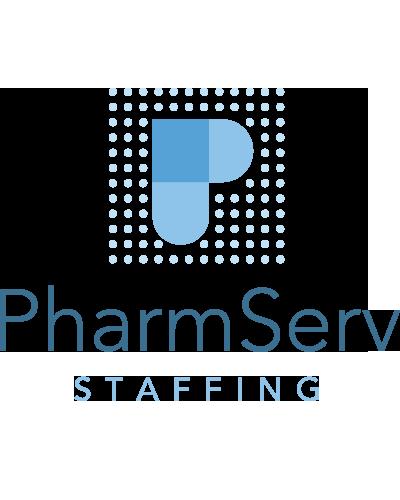





IOWA PROJECT FIRSTLINE:
(And don’t forget to get yours, too!)
This RSV and flu season, help your patients stay healthy by talking to them about RSV and flu vaccines. Iowa Project Firstline has free tools and resources that can help.
Haven’t gotten your RSV and flu vaccines this winter? Since healthcare professionals are at an increased risk of contracting these viruses, make sure to get vaccinated as soon as possible. It’s how you can help stop the spread and keep your workplace healthier.
2570 106th Street, Unit D, Urbandale, IA 50322
Phone: 515.270.0713 Fax: 515.270.2979
Email: ipa@iarx.org | www.iarx.org


Allison Hale Luther, Managing Editor
Kate Gainer, PharmD
Ryan McClellan, PharmD, SHIMSS
Laura Miller
Kellie Staiert, MPA
George Appleseth, PharmD
CHAIRMAN
John Hamiel, PharmD – Evansdale
PRESIDENT
Jim Hoehns, PharmD, BCPS, FCCP – Cedar Falls
PRESIDENT-ELECT
Wes Pilkington, PharmD – Waterloo
TREASURER
Kristin Meyer, PharmD, BCGP, CACP, FASCP – Marshalltown
SPEAKER OF THE HOUSE
Laura Knockel, PharmD, BCACP – North Liberty
VICE SPEAKER OF THE HOUSE
Ryan Jacobsen, PharmD, BCPS – Iowa City
TRUSTEES
REGION #1
Kelly Kent, PharmD – Williamsburg
REGION #2
Natalie Hunter, PharmD – Cedar Falls
REGION #3
Helen Eddy, RPh, MBA – Des Moines
REGION #4
Wendy Kinne, PharmD – Boone
AT LARGE
Betsie Frey, PharmD, BCPS – Cedar Falls
Andy Stessman, PharmD – West Des Moines
Brett Faine, PharmD, MS – Iowa City
Cory Garvin, PharmD – Wilton
HONORARY PRESIDENT
Mike Pursel, MBA, CHP, BS Pharm – Morrison, CO
Connie Bentrott, CPhT – Ames
Kelly Andersen, CPhT – Des Moines
STUDENT
Stacy Johnson – Drake University
Renner
University of Iowa
The Journal of the Iowa Pharmacy Association is a peer-reviewed publication. Authors are encouraged to submit manuscripts to be considered for publication in the Journal. For author guidelines, see www.iarx.org/journal
“The Journal of the Iowa Pharmacy Association” (ISSN 15257894) publishes 3 issues per year: January/February/March/ April issue; May/June/July/August issue; and September/ October/November/December issue by the Iowa Pharmacy Association, 2570 106th Street, Unit D, Urbandale, IA 50322.
POSTMASTER: Send address changes to: The Journal of the Iowa Pharmacy Association, 2570 106th Street, Unit D, Urbandale, IA 50322. Published tri-annually, The Journal is distributed to members as a regular membership service paid for through allocation of membership dues. Subscription rates are $80 per year, single copies are $30. Printed by Mittera; Graphic design by the Iowa Pharmacy Association.



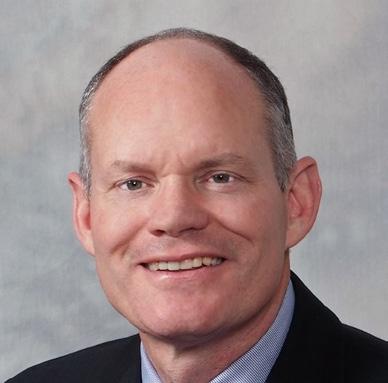
Jim Hoehns, PharmD, BCPS, FCCP
IPA President Clinical Associate Professor, UI College of Pharmacy, Ambulatory Care Preceptor, Cedar Valley Primary Care
This promises to be an exciting year for IPA and one filled with significant change. Our Executive Vice President & CEO, Kate Gainer, has announced she will be leaving her position in 2025. Kate has been a tremendous leader for our organization! She has been the CEO since replacing Tom Temple in 2011.
While I am sad to see Kate leave, I cannot help but be grateful for the fourteen years she has been at the helm, working in close partnership with IPA’s Board, elected leaders, and the full membership. Kate has indeed been a visionary leader for IPA, and we have benefitted from her strategic thinking and clear vision. One doesn’t have to look far to see her fingerprints on so many important initiatives which impact pharmacy in Iowa.
One recent notable initiative is the passage of a modernized Pharmacy Practice Act, shifting to a standard of care regulatory framework and full practice authority for pharmacists. This is a tremendous accomplishment. Kate’s leadership also created the Executive Fellowship in Association Management position at IPA, now entering its tenth year.
“
ship at IPA.
When I was installed as IPA President, I could not have predicted what it would entail. In short, it has been a wonderful experience. I’ve participated in many meaningful events, from the NASPA Leadership Conference, Decker-Temple Leadership Pharmacy, the Board retreat and strategic planning, and many other activities. It has been fun hosting the Trailblazers podcast, which was started by past president John Hamiel.
I am energized by my interactions with fellow IPA members. We are blessed to have so many hardworking, passionate pharmacists in our organization and across Iowa. We are equally fortunate to have an amazing staff team at IPA. Thank you to everyone who has contributed to IPA’s efforts this past year!
“One constant we can all be certain of is that ‘change’ in pharmacy practice will continue.”
Over the past four years, Kate worked closely with the PNI Board to successfully sell IPA’s headquarters and relocate the office, bringing financial gains to the Association as well as a fresh setting for the staff to work in each day. Kate ensures Iowa is well represented at the national level. This included serving as a board member and president of NASPA (2017-2024) in addition to her other duties.
I am impressed with the planning and detail which Kate has prepared for the IPA Board to select IPA’s next CEO. The entire search process plan is clearly defined. The appointed search committee will conduct two rounds of interviews and narrow the applicant pool to two-three candidates for final interviews with the IPA Board of Trustees. Kate has also graciously offered to provide overlap and training for our new leader, if needed. Just as Kate has done during her entire tenure at IPA, she is continuing to position IPA for success in the future. I anticipate a smooth transition in leader-
I remain optimistic for the future of our profession. After a decade of declining pharmacy school applications, AACP reports a nearly 9% increase during the 2023-2024 admissions cycle compared to the previous year. Moreover, the current national admissions cycle shows additional growth, with 12% more applicants having submitted their pharmacy school applications as of December 2024 compared to December 2023. It’s good to see stabilization of pharmacy school applications.
Lastly, I enjoyed seeing IPA members at the Standard of Care Symposium in February. The speakers and sessions were excellent, and the timing couldn’t have been better for this educational programming. For the next IPA event, try to bring a pharmacist friend or coworker with you!
One constant we can all be certain of is that “change” in pharmacy practice will continue. I believe the new Practice Act will help pharmacists in Iowa adapt to changes in healthcare as they occur.
So, get ready for change in 2025. Change abounds for our profession in Iowa and for IPA leadership. I’m excited to see what the future holds! ■


George Appleseth, PharmD, IPA Executive Fellow
When you picture a typical town in Iowa, what do you see? A gas station, everyone’s favorite local coffee shop, a school, a medical clinic, and your hometown pharmacy. However, the typical Iowa community is on the brink of looking vastly different with an increasing number of pharmacies being forced to close their doors.
When a pharmacy closes, it leaves a void that ripples through the community, resulting in both immediate and long-term consequences. Patients lose access to pharmacist services, essential medications, immunizations and healthcare guidance, often forcing them to travel miles for services they once had nearby. When patients travel to other areas for pharmacy services, they may move healthcare appointments to that next larger city as well, or shift other spending habits, such as grocery shopping and dining out, leading to a loss of economic activity in their home community. This can weaken the local economy, reduce employment opportunities, and exacerbate the challenges rural towns already face. Vulnerable populations, such as the elderly and those with limited access to transportation services, are hit hardest, leading to poorer health outcomes and increased healthcare expenditures due to preventable hospitalizations and emergency room visits.3
Beyond the practical impacts, the loss of a community pharmacy threatens the very essence of what makes small-town America so unique—the sense of connection, trust, and shared identity. It is a cornerstone of daily life, a trusted resource for health advice, and a place where neighbors connect and relationships are built. Pharmacies are often family-owned and multi-generational, embodying the spirit of resilience and service that defines Americana. Their closure not only disrupts lives but also erodes the fabric of communities, leaving behind a void that is difficult, if not impossible, to fill.
The role of IPA Executive Fellow requires that I wear many hats, gaining broad exposure to all facets of the Iowa Pharmacy Association and how the organization serves as the unifying voice of pharmacy in Iowa. Exceptional member experience is a core value of IPA. One of my responsibilities is connecting with pharmacists to answer questions, provide information, and learn from their experiences. Serving as a resource and personal connection for IPA members this year has been incredibly rewarding.
49% 34% 17% of pharmacies are operating at a financial loss of pharmacies are operating at break-even of pharmacies are operating with positive net revenue
However, it is also incredibly heartbreaking to speak with pharmacists forced to close their doors in their local communities. This is not due to a lack of community support but rather to the current economic environment. Pharmacists are making every effort to sustain their operations and continue serving their communities, often implementing creative solutions and making significant adjustments to stay solvent.
According to a 2024 IPA survey, 49% of respondents reported operating at an economic loss, with many taking drastic measures such as reducing staff, cutting services, and even relying on personal lines of credit. Despite these efforts, overwhelming challenges like financial strain and workforce shortages threaten their ability to remain open.7 These dedicated healthcare providers are exhausting all viable options to ensure their patients maintain access to care before facing the difficult decision to close.
Pharmacy closures are also a symptom of a deeper problem: the erosion of economic liberty. The inability to provide a critical service and be compensated fairly undermines the principles of free and fair economic competition, a foundation upon which America was built. In the same 2024 community pharmacy survey, most pharmacies reported a negative margin on up to 40% of prescriptions dispensed, with some indicating up to 80% of prescriptions were reimbursed below cost.7 This loss of revenue has reduced the economic viability of operating a pharmacy. This decline steadily continues due to the monopolistic practices of Pharmacy Benefit Managers (PBMs).
Recognizing the questionable practices of PBMs is not new to many IPA members; it has been an issue for decades. In fact, it has been a problem since my grandfather, George Appleseth, was forced to close his two northwest Iowa community pharmacies more than 25 years ago due to shrinking revenue margins driven by PBM practices. My dad always told me it broke my grandpa’s heart to leave the profession he loved, and I believe it seeing how it impacts Iowa pharmacists’ that are forced to do the same. He was proud of his profession, the role he played in the community, and the relationships he built with his patients. Today, I hear comparable stories from generational pharmacists who have given so much only to face the same fate.
For several years, the FDA has used the term “food deserts” to describe areas with limited access to food, defining them as locations more than 10 miles from a grocery store in rural regions or more than 1 mile away in urban settings. Health researchers have since expanded this concept to examine access to various healthcare services, including pharmacies. Originally introduced in a 2014 study, the term “pharmacy deserts” refers to neighborhoods with limited access to pharmacies.11 These areas, where access to healthcare is severely limited, are especially
prevalent in states like Iowa, with many rural communities. It is estimated that 2,177 rural towns with populations between 500 and 5,000 lack access to a pharmacy within 10 miles.8 Researcher Michael Andreski, RPh, MBA, MJ, PhD, of Drake University has studied pharmacy closure data in recent years and, specifically, what potentially lies ahead if legislative action is not taken to improve pharmacy reimbursement.
The graphic below was created by Andreski and highlights areas in Iowa at risk of becoming new “pharmacy deserts,” as several counties now have only one remaining pharmacy. Andreski emphasizes the urgency of the situation, stating, “We’re on the brink of a major access-to-care issue in the state.”
Urban areas in Iowa have seen a 12% decrease in the number of pharmacies over the past 15 years, despite a population increase of over 3% during the same period.2 This decline has disproportionately impacted low-income and minority communities, where residential segregation and limited geographic accessibility exacerbate disparities in healthcare access. As a result, pharmacy deserts are increasingly prevalent in these neighborhoods, further hindering equitable healthcare availability.9
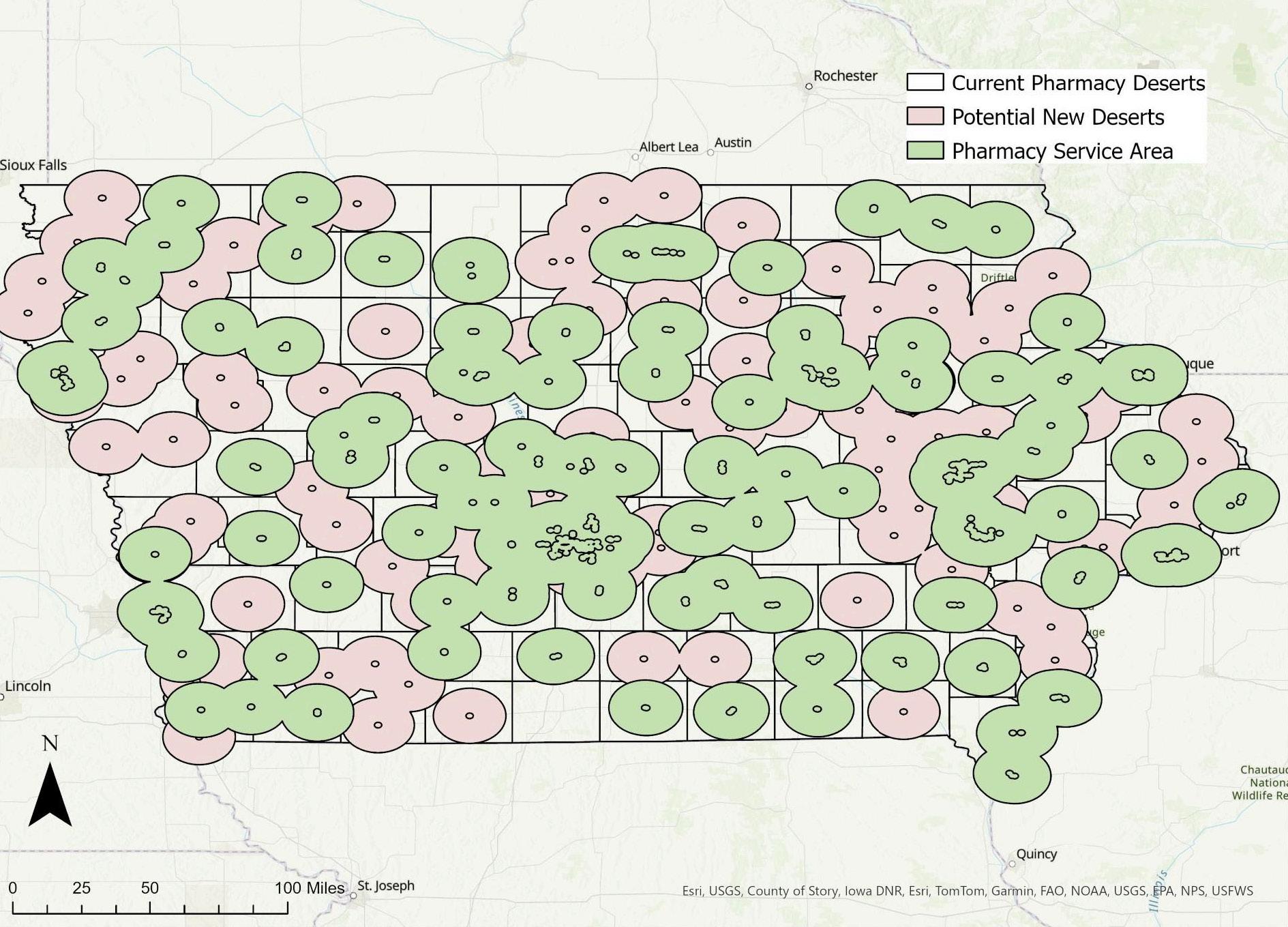
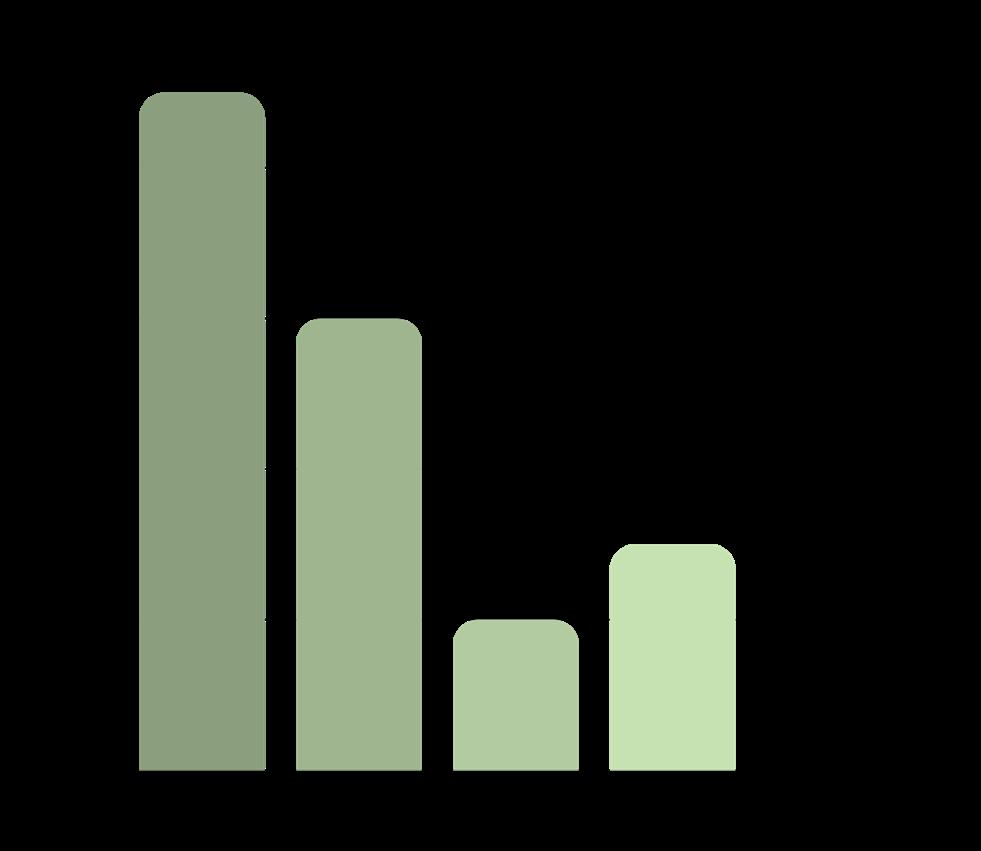
% Rx Dispensed Below Cost
2024 Iowa Community Pharmacy Survey, Iowa Pharmacy Association
A study conducted in New York City revealed significant (P<0.01) differences in chain pharmacy availability, with Manhattan having 0.43 chain pharmacies per 1,000 residents, compared to only 0.06 in the Bronx, Brooklyn, Queens, and Staten Island. Across multiple cities, pharmacy deserts were consistently more common in Black and Latino neighborhoods, where pharmacies were also more likely to close and less likely to provide services like immunizations, 24-hour access, and drive-through options as of 2020.6
Additionally, the growing elderly population in the U.S., driven by aging baby boomers and millennials, will require increasingly extensive healthcare services.3 Without local pharmacies, patients are left with poor health outcomes, increased emergency department visits, and other substantial downstream effects that strain the healthcare system.
Why aren’t more people talking about this?
PBMs remain unrecognized by most patients in rural and urban areas and are misunderstood by employers, policymakers, and payers. This is not coincidental. It is intentional, as PBMs defend their interests through extensive lobbying efforts at both the state and federal levels. According to the Wall Street Journal, UnitedHealth employs over 130 lobbyists, including former White House staff, Justice Department officials, and prominent legislators.4
Over the past decade, UnitedHealth has spent at least $49 million to maintain its influence and protect its profits.3 Moreover, the Pharmaceutical Care Management Association (PCMA) is the main lobbying group for the “big three” PBMs— CVS Health’s Caremark, Cigna Group’s ExpressScripts, and UnitedHealth Group’s OptumRx—and goes to great lengths to protect their interests. Over the last several years, PCMA has spent increasing amounts in this effort to the tune of 7.8 million dollars in 2021, 8.6 million dollars in 2022, and 15 million dollars in 2023.1 You’re familiar with the saying “money talks,” but in this case,
it does the exact opposite—it keeps others silent and PBMs out of sight.
The harmful consequences of PBM practices are now becoming known. Their impact on pharmacies, healthcare providers, and the nation is becoming increasingly evident as consumers, employers, and legislators gain more awareness.
Recent investigations into PBMs have sparked greater awareness and scrutiny.
In 2024, the Federal Trade Commission (FTC) released its interim report on PBM practices.10 This was followed by investigative reporting from prominent outlets like the New York Times and the Wall Street Journal, which amplified the conversation around PBMs and their harmful impact on Americans.13,15 Increased awareness has also reached the state level, with local television stations covering the story and driving further attention to this critical issue.
They say history repeats itself. Just as the monopolistic practices of the Industrial Age led to the Sherman Antitrust Act of 1890, now is the time to address the anti-competitive practices of PBMs. If there was ever a time to take action, it’s now.
We must use our collective voice to advocate for PBM reform in Iowa during the 2025 Legislative Session if we are to bring about meaningful change. Use your voice and contact your legislators. The importance of just one conversation cannot be emphasized enough. Together, we can build momentum to bring about meaningful change—not just for our communities and our state, but for our profession as a whole. ■
1. Aboulenein, A. (2024, January 25). US pharmacy benefit lobby group ramps up spending as lawmakers close in | Reuters. https://www.reuters.com/business/healthcare-pharmaceuticals/us-pharmacy-benefit-lobby-group-ramps-up-spending-lawmakers-close-2024-01-25/
2. Andreski, Michael, and Chloe Isbell. “Changing Pharmacy Access in Iowa 2008-2024.” ArcGIS StoryMaps, Esri, 15 Jan. 2025, storymaps.arcgis.com/stories/224475f746694387994b87944932fa63.
3. Blakeslee, L. (2023, May 25). Age profiles of smaller geographies don’t always mirror the National Trend. Census.gov. https://www.census.gov/library/stories/2023/05/aging-united-states-population-fewer-children-in-2020.html
4. Diamond, D., Roland, C. l, & Gilbert, D. (2024, April 30). Unitedhealth grew very big. now, some lawmakers want to chop it down. - The Washington Post. washingtonpost.com. https://www.washingtonpost.com/health/2024/04/30/unitedhealth-congress-review-cyberattack/
5. Di Novi, C., Leporatti, L., & Montefiori, M. (2020). Older patients and geographic barriers to pharmacy access: When nonadherence translates to an increased use of other components of health care. Health economics, 29 Suppl 1, 97–109. https://doi.org/10.1002/hec.4031
6. Guadamuz, J. S., Alexander, G. C., Zenk, S. N., Kanter, G. P., Wilder, J. R., & Qato, D. M. (2021). Access to pharmacies and pharmacy services in New York City, Los Angeles, Chicago, and Houston, 2015-2020. Journal of the American Pharmacists Association : JAPhA, 61(6), e32–e41. https://doi. org/10.1016/j.japh.2021.07.009
7. Iowa Pharmacy Association. (2024, December 2). 2024 Iowa Community Pharmacy Survey. Online Survey.
8. Jolley, B. (2024, September 17). 2275 pharmacies have closed so far in 2024. https://benjaminjolley.substack.com/p/2275-pharmacies-have-closed-so-far
9. Kwan, PharmD, N. (2024, April 18). The impact of Pharmacy Deserts. U.S. Pharmacist – The Leading Journal in Pharmacy. https://www.uspharmacist.com/article/the-impact-of-pharmacy-deserts
10. Nguyen, Stephanie T. “Pharmacy Benefit Managers: The Powerful Middlemen Inflating Drug Costs and Squeezing Main Street Pharmacies.” Federal Trade Commission, 9 July 2024, www.ftc.gov/ reports/pharmacy-benefit-managers-report.
11. Qato, D. M., Daviglus, M. L., Wilder, J., Lee, T., Qato, D., & Lambert, B. (2014). 'Pharmacy deserts' are prevalent in Chicago's predominantly minority communities, raising medication access concerns. Health affairs (Project Hope), 33(11), 1958–1965. https://doi.org/10.1377/hlthaff.2013.1397
12. Rachel Wittenauer, Parth D Shah, Jennifer L Bacci, Andy Stergachis, Locations and characteristics of pharmacy deserts in the United States: a geospatial study, Health Affairs Scholar, Volume 2, Issue 4, April 2024, https://doi.org/10.1093/haschl/qxae035
13. Robbins, Rebecca, and Reed Abelson. “The Opaque Industry Secretly Inflating Prices for Prescription Drugs.” The New York Times, The New York Times, 21 June 2024, www.nytimes.com/2024/06/21/ business/prescription-drug-costs-pbm.html#:~:text=The%20job%20of%20the%20P.B.M.s,New%20 York%20Times%20investigation%20found.
14. UnitedHealth Group lobbying profile. OpenSecrets. (n.d.). https://www.opensecrets.org/federal-lobbying/clients/summary?id=D000000348
15. Wainer, David. “How Drug Middlemen Keep Beating the System.” The Wall Street Journal, 10 July 2024, www.wsj.com/finance/stocks/how-drug-middlemen-keep-beating-the-system-671a638b.
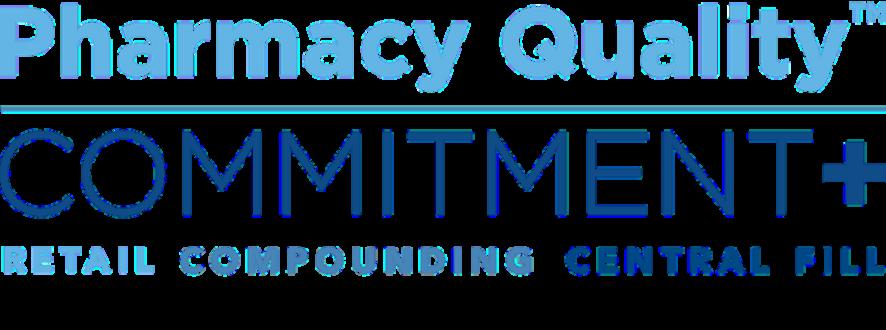

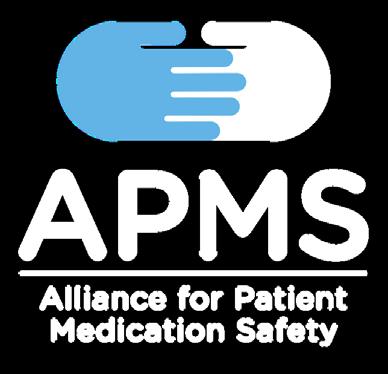
Kate Gainer has served as IPA’s Executive Vice President & CEO since January 2, 2012. Gainer announced she intends to step down as CEO, following over thirteen years of service, effective June 2025. The IPA Board of Trustees has full confidence in the leadership that will be provided by Kate in the months ahead and will work in partnership to ensure a smooth CEO transition for the organization. At the November Board meeting, plans were approved to hire a search firm—the National Alliance of State Pharmacy Associations (NASPA)—and appoint a search committee.

The individuals appointed to IPA’s CEO Search Committee (Right) are committed to carrying out the important work related to hiring IPA’s next Chief Executive Officer. The committee will play an important role in reviewing all applications and conducting first and second round interviews. Up to three finalist candidates will be recommended by the Search Committee to the full IPA Board. The IPA Board of Trustees will make the final decision in hiring IPA’s next CEO, following in-person finalist interviews.
November 2024
Kate Gainer notifies Board of Trustees. Announcement is made to IPA membership.
December 2024
IPA CEO Search Committee is appointed. CEO position is posted online.
Jim Hoehns, PharmD, BCPS, FCCP, Chair IPA President
Wes Pilkington, PharmD, Vice Chair IPA President-Elect
Chris Clayton, PharmD, MBA IPA Past President
Connie Connolly, BSPharm, BCACP IPA Past President
Jill Kolesar, PharmD, MS, BCPS, FCCP Dean, University of Iowa College of Pharmacy
Erik Maki, PharmD, BCPS Dean, Drake University College of Pharmacy and Health Sciences
Jennifer Moulton, BSPharm, RPh Partner, President of CEimpact
Sarah Sorum, PharmD Peer, CEO of the Pharmacy Society of Wisconsin (PSW)
Andrew Stessman, PharmD New Practitioner, IPA Board Member
January 2025 CEO applications are accepted. FebruaryMarch 2025
1st and 2nd round interviews with Search Committee. Finalist interviews with full IPA Board. April 2025
New IPA CEO announced (anticipated). May-June 2025
Start date of new IPA CEO (anticipated).

Kate Gainer, PharmD
Executive Vice President & CEO, Iowa Pharmacy Association
I considered if, when, and how I could ever envision stepping down from my position at IPA. It’s difficult to imagine leaving a career that brings fulfillment and joy, along with challenges and some heartbreak. My personal values have always aligned with IPA’s values, including ‘relationships matter’ and ‘professional excellence.’ This alignment makes the highs and the lows of working for the Association rewarding, knowing that the work we do each day directly impacts people I know and care about. This summer will mark my 20th anniversary at IPA, and year 14 as CEO. Ultimately, the decision solidified when I factored in the recent milestones achieved by IPA, the stability of IPA’s staff and finances, and the current stage of our family life and ages of our four children.
The message below was shared with the IPA Board at the November 2024 meeting and then sent to the full IPA membership and stakeholders.
To the IPA Membership:
I love IPA. I have worked for the Iowa Pharmacy Association for 19 years, and as CEO for the past 13. Working for IPA has not only shaped who I am as a person, it has been my greatest professional honor. The members and the mission of IPA have brought more meaning to my life than I ever thought possible.
With immense gratitude and optimism, I am writing to share that I will conclude my service as CEO effective June 2025.
The leadership possessed by pharmacists in Iowa, including IPA’s members and board, is unmatched. Together, we have strengthened the legacy of collaboration and pharmacy leadership that defines Iowa Pharmacy. Our achievements over the past 13 years reflect the dedication and vision of the pharmacy profession in our state. IPA’s strength lies in the culture of innovation, collaboration, leadership, and is seen through robust programs, solid finances, and an exceptional foundation for continued growth.
IPA is well-positioned for future success with a visionary board and talented staff. I am committed to working with the board, staff and membership to ensure a smooth leadership transition.
Before looking to my next professional chapter, I am excited to dedicate time to my family. I’ve known many IPA members longer than I’ve known my husband, and you have watched our family grow in that time. Our four children are now 13, 12, 9, and 9 and were all born during my first four years as CEO. This next summer will be a special time for us together before I explore new opportunities that align with my passion for mission-driven work.
Thank you for your support, your guidance, and your friendship throughout these past 19 years. IPA’s future is bright, and I am forever grateful to be a part of this remarkable association.
With gratitude,


IPA congratulates the newly elected members of its Board of Trustees. The following individuals will be installed and welcomed to the Board at the 2025 IPA Annual Meeting, June 5-6 in Des Moines, IA. IPA sincerely thanks all candidates for their leadership in running and demonstrating their willingness to serve the profession in this capacity!
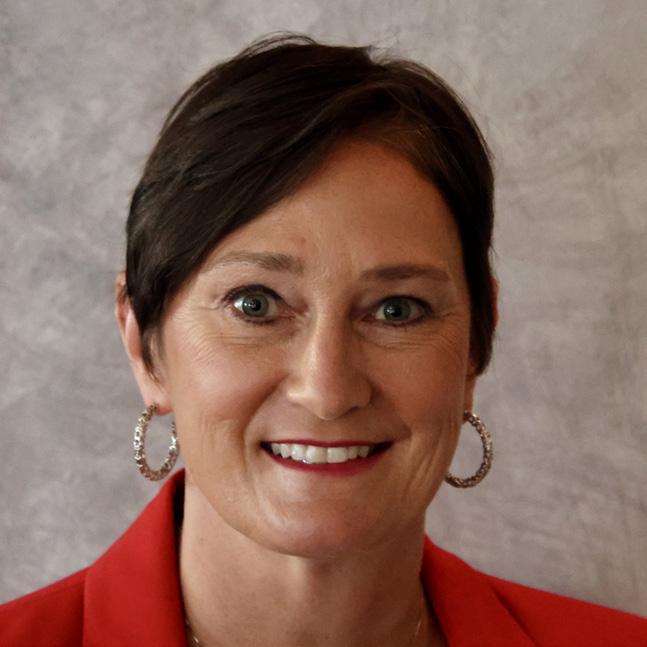
Heather Ourth, PharmD, BCPS, BCGP, FASHP West Des Moines, IA

TRUSTEE AT LARGE
Omobola Thompson, PharmD Clive, IA

Dana McDougall, PharmD, BCPS, BCOP Hudson, IA
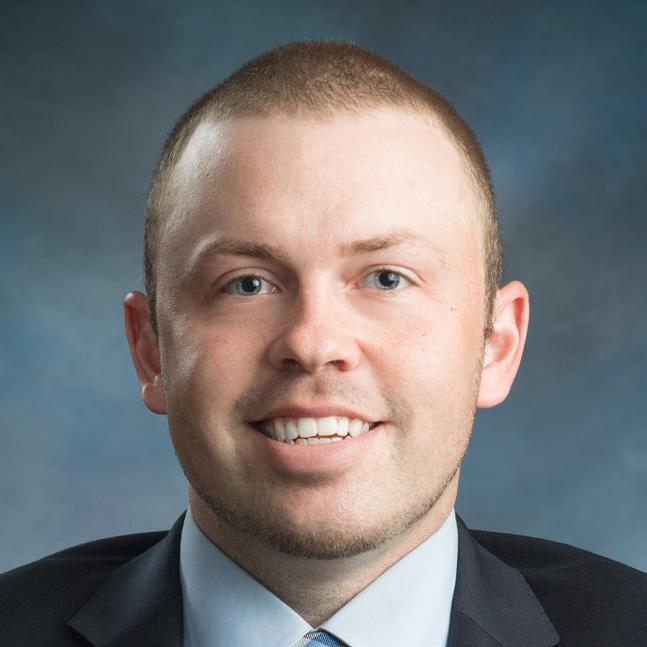
TRUSTEE AT LARGE
Mylo Wells, PharmD Bloomfield, IA
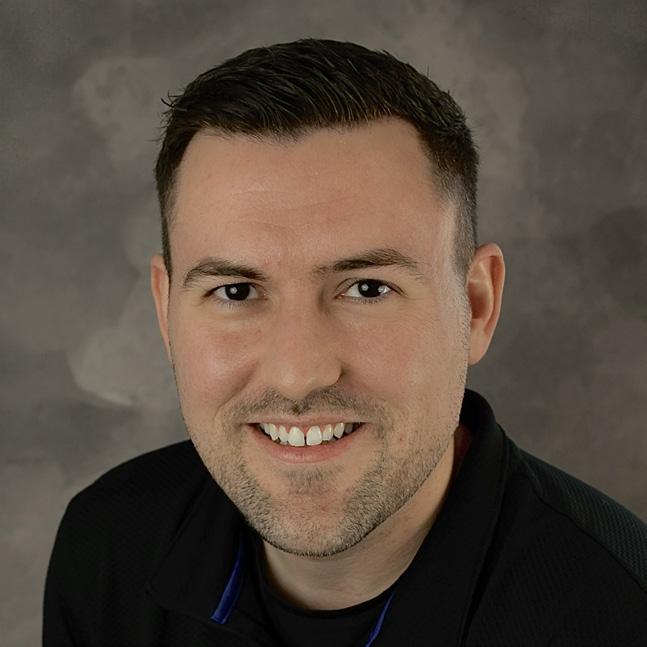
Andrew Wagner, PharmD Eagle Grove, IA

PHARMACY TECHNICIAN
Kimerly Metcalf, CPhT-Adv Cedar Falls, IA
In addition, Wes Pilkington, PharmD, IPA’s current President-Elect from Cedar Falls, will be installed as the association’s 147th President at the Annual Meeting. Pilkington is a pharmacist and owner of Evans Crossing Pharmacy in Evansdale, IA.
In December, IPA unveiled a new three-year strategic plan, highlighting the Association’s focused efforts surrounding:
Practice Transformation: Practice Resources & Workforce
Amplified Voice: Advocacy & Public Relations
Innovation and Growth: Membership & Technology
This three-year picture will guide the long-term goals as well as day-to-day work of IPA staff.
The new strategic plan includes IPA’s 3 Uniques (or differentiators): Community, Unification and Excellence. These uniques guide our promise to you:
When you engage with IPA, you will experience community, unification and excellence in the pharmacy profession.
In addition, the strategic plan features IPA’s core values, representative of IPA members, staff and the organization.



Community: IPA provides connection to people, resources and opportunities.
Unification: By having one voice for the profession, IPA is a respected thought leader in pharmacy.
Excellence: IPA offers cutting-edge resources, innovative programs and engaging events.



The Association exists for its members, who feel valued and recognized for their unique contributions. IPA staff are dedicated to understanding and serving members, fostering meaningful connections.
IPA prioritizes building strong relationships with our members, partners, and staff by fostering a culture of active participation and mutual support. We welcome diversity and learn from all perspectives to create an inclusive environment. IPA unifies the profession, ensuring all voices are valued.
IPA strives to represent and serve our members with the utmost excellence and dedicate ourselves to advocating for and empowering the pharmacy profession.
IPA believes in the power of membership collaboration to achieve common goals. “If you want to go fast, go alone. If you want to go far, go together.”
IPA advances our strategic goals with creativity and inspiration, ensuring that we stay at the forefront of pharmacy profession trends and policy.
IPA promotes a positive, fun, and engaging atmosphere and serves as a beacon of optimism for the profession.

As of January 1st, I have officially been “the Dean” for six months, and wow has time flown by quickly. In all seriousness, since we are all friends here, please continue to call me Erik. Truly, everyone has been encouraging, kind, and I am truly honored to work at Drake.
Back in August, we were excited to welcome our new students at our White Coat ceremony. It is inspiring to see students take the next steps in their academic journey. This is especially true for faculty when you get to see your mentees walk across the stage and know how hard they worked, and the challenges overcome.
In November, we awarded Dr. Brian Reisetter, PH’85, our colleges highest honor, the Lawrence C. and Delores M. Weaver Medal of Honor. Dr. Reisetter has had an amazing career journey, and if you haven’t had the chance to meet him, you can find a short article on our website. I’d encourage you to read more about Brian. One of the best parts about being dean is the opportunity to meet, learn from and be inspired by amazing individuals who love the place you work.
For more than a year, the faculty have been working on a new part-time pathway (6 years) for our program. Maybe it needs a more creative name, but for now we are calling it “The Extended Pathway.” It is our hope that this pathway will

Dr. Jill M. Kolesar, PharmD, MS
Dean & Professor, University of Iowa College of Pharmacy
Entering office as a newly appointed leader is often filled with anticipation, excitement, and a sense of responsibility. Since officially becoming dean on July 15, 2024, I have truly enjoyed every day of this journey.
One of the most important aspects in my first few months was to gain an understanding of the collegiate structure and key decision-makers. I aimed to connect with people in the college—learning about their values, passions, and concerns.
I also met, and continue to meet, with key stakeholders both in Iowa and beyond to better understand the concerns of professionals across the state. I dedicated significant time to one-onone conversations with faculty, staff, colleagues,
create opportunities for students who haven’t been able to pursue a pharmacy degree because they are unable to be a full-time student. We submitted our plan to ACPE in November and anticipate offering this opportunity in the fall pending ACPE approval.
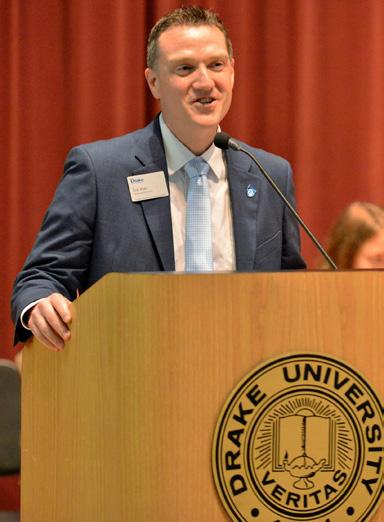
Lastly, December marked the end of an era for us, as Dean Emerita Renae Chesnut officially retired. The word limit of this column will not allow me to adequately express the impact she has had not only on our college but also the profession and beyond. You can help us thank Renae by supporting the Chesnut Pursuit of Excellence Fund.
Donations can be made at https://alumni.drake. edu/giveonline with the inclusion of “Chesnut Pursuit of Excellence Fund” in the comments.
Thank you for your support. ■
community members, policymakers, and partners to gain insight into their primary concerns.
One of my initial time-sensitive priorities was to complete our accreditation process. Leading the effort was Associate Dean Mary Ray and the accreditation team. They facilitated our self-study, ensured our reports were submitted on time, and oversaw a successful accreditation team visit. While we’re waiting for the full final report, all indications point to very positive results. I’m grateful to the accreditation team, faculty, staff, preceptors, students, and community members for reaching this milestone.
A key undertaking in 2025 is a new strategic plan, which will be led by an appointed steering committee with the support of a consulting firm. We look
forward to engaging our stakeholders in this process, with a goal of reaching the implementation phase by September 2025.
With new leadership in several areas of the college, I have experienced a surge of energy and innovative ideas, driving positive change across the organization. Our college community understands that transitions require a balance of adaptability, active listening, and team building, all while remaining focused on our goals. I am excited about the opportunities and growth potential that lie ahead.
Among the most recent leadership transitions, I’m pleased to introduce newly appointed Professional Experience Program (PEP) Director and Clinical Associate Professor Gretchen Brummel. She most recently served as the Pharmacy Executive Director of Education and Communications at Vizient, Inc., and brings a wealth of expertise to the college. Dr. Brummel received her Doctor of Pharmacy in 1997 from the University of Iowa and completed PGY1 and PGY2 residencies. As PEP Director, leadership is essential, and she brings extensive experience leading teams and fostering a collaborative work environment. I am confident that her skill set will benefit many of you—our preceptor sites and communities—as well as our students. If you don't know her already, I hope you'll have the chance to meet her soon.
As you are aware, Iowa is facing a significant loss of pharmacies, and our citizens are bearing the consequence. Access to healthcare in our rural communities is becoming increasingly difficult. In response, researchers within the college are developing new initiatives, including a protocol for cancer screenings at local pharmacies. The college is also working to expand our residency programs statewide, offering advanced training opportunities and creating pathways to serve in community settings. I look forward to meeting many of you in the months ahead and welcome your feedback and innovative ideas on these important issues.
I have a strong passion for research and drug development, and I find great fulfillment in doing work that positively impacts people's lives. Given that Iowa has the second-highest cancer rate in the country, I hope to use my expertise in cancer research to help improve health outcomes across the state. As dean, I believe I can make an even greater impact by supporting faculty and growing our research enterprise—a key mission of both the college and the university.
The first six months in office have been a period of personal and professional growth. I’m thankful for the warm reception since I’ve arrived. As I continue this journey, I do so with a deep sense of gratitude for those who have supported me. I’m energized and honored to lead the college forward! ■

January 1, 2025, marked the inception of the Medicare Prescription Payment Plan, a program mandated by the Inflation Reduction Act of 2022. This initiative aims to alleviate the financial burden on Medicare beneficiaries by offering a more flexible payment structure for prescription medications.
Key features of the plan include:
1. A $2,000 annual out-of-pocket limit for all brand-name and generic prescriptions.
2. An optional program allowing patients to spread prescription costs throughout the year.
3. $0 payment at the pharmacy counter for enrolled patients, with reimbursement to pharmacies by Medicare Part D plans.
For pharmacy professionals, this means adapting processes to accommodate new billing procedures and patient counseling approaches. Pharmacists must familiarize themselves with the unique BINs/PCNs beginning with “MPPP” for processing these claims and prepare for the 14-day reimbursement timeline for electronic submissions.
Implementation challenges of the new Medicare Prescription Payment Plan (MPPP) have emerged, highlighting areas for improvement in patient communication and stakeholder awareness. As experienced by IPA members, key issues include:
1. Enrollment confusion: Patients are contacting Medicare directly instead of their pharmacy benefit providers.
2. Stakeholder knowledge gaps: Some payers and Pharmacy Benefit Managers (PBMs) demonstrate limited awareness of the MPPP.
3. Information dissemination: Pharmacy benefit helplines have been reported to lack program details, hindering patient assistance.
While such hurdles are not uncommon with new healthcare initiatives, addressing these challenges is crucial. Enhancing understanding and adapting processes across the MPPP ecosystem will significantly improve patient service delivery and program effectiveness.
Iowa Medicaid mandated that contractors and subcontractors maintain separate pharmacy networks from their commercial networks, effective January 1, 2025. This change was part of a contract amendment proposed by the state to each MCO.
Advocacy for this policy change stemmed from IPA’s House of Delegates 2024 New Business Item and aims to ensure equitable access to state Medicaid networks for all pharmacies.
This contract amendment, mandating separation of PBM networks, demonstrates the critical role IPA’s policy process and advocacy efforts play in supporting Iowa’s pharmacies and Medicaid beneficiaries.
1. IPA urges Iowa Medicaid and their contractors to maintain separate pharmacy networks, distinct from their commercial and Medicare networks.
2. IPA urges Iowa Medicaid and their contractors to prohibit contracted entities and subcontractors from requiring pharmacies to contract for all current and future products offered.
3. IPA will advocate through legislative and regulatory channels, working with Iowa Medicaid, MCOs, PBMs and other stakeholders to ensure fair access to pharmacy services for all Iowans.

Pharmacists in Iowa have firsthand experience with the evolving landscape of healthcare delivery, reimbursement, and payment for services. One significant opportunity for pharmacists occurred in 2020, when Iowa Medicaid added pharmacists to the list as OLP’s (other licensed providers) with a unique provider code for pharmacists (provider type 82). With this recognition, pharmacists can bill for services through Iowa Medicaid. In the first four years, pharmacists have had varying degrees of success enrolling in Iowa Medicaid and being credentialed by the state’s three managed care organizations (MCOs). This article aims to act as a general guide on the enrollment process for pharmacist provider type 82, highlighting the benefits and steps required to become a registered provider with Iowa Medicaid and its MCOs.
Enrolling as a provider with Iowa Medicaid opens doors to expanded service offerings and payment opportunities. Once enrolled, pharmacists can bill pharmacist medical provider type services under pharmacist provider type 82.
Medical provider services allow pharmacists to fully utilize their expertise and training to provide comprehensive care to patients while ensuring fair compensation for services. Services for individual pharmacists include immunizations, point of care testing, and/or additional patient services. Within the pharmacist provider type 82, Current Procedural Terminology (CPT) codes (ex. G0108, 0115T, 0116T), evaluation management (E/M) codes, and Medication Therapy Management (MTM) codes (ex. 99605, 99606, 99607) are available for pharmacists to bill for services provided to patients. CPT, E/M, and MTM codes can be referenced by accessing the Iowa Medicaid fee schedule for provider type 82

https://secureapp.dhs.state.ia.us/medicaidfeesched/X82.xml
» Expanded service offerings
» Increased payment for services opportunities
» Enhanced patient care capabilities
» Recognition as a healthcare provider
STEP 1:
Iowa Medicaid Fee-for-Service (FFS)
The journey begins with enrolling in Iowa Medicaid FFS. This crucial first step is mandatory before proceeding to contract with the MCOs.
Visit the IA Medicaid Provider Forms HHS webpage and complete the Iowa Medicaid Universal Provider Enrollment Application
https://hhs.iowa.gov/programs/welcome-iowamedicaid/provider-services/imeprovidersforms
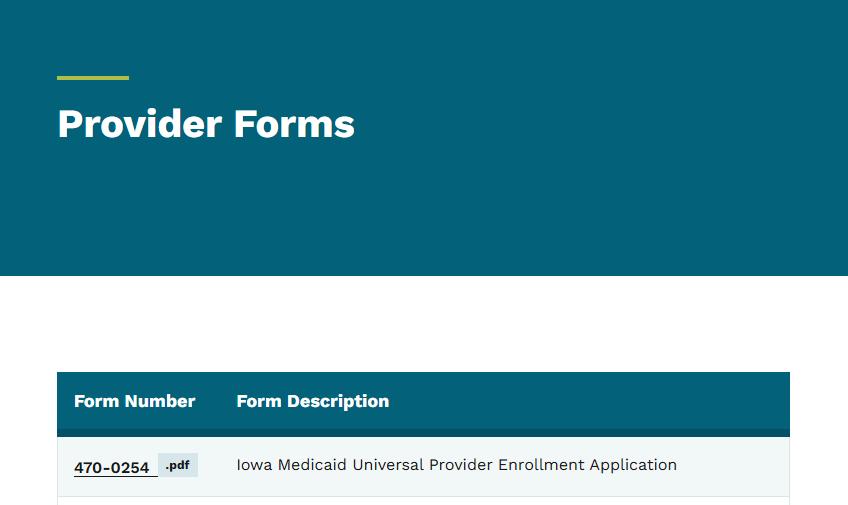
1. Submit the application via email, fax, or mail.
2. Await confirmation of enrollment via traditional mail.
When completing the application, pay close attention to the provider type codes and ensure provider type 82 for pharmacist is selected/provided. Those who have not enrolled in any provider types under Iowa Medicaid or with the MCOs can use these forms for enrollment in the additional provider types listed below:
• Type 82 for Pharmacist (Medical services)
• Type 08 for Pharmacy (Point of Sale (POS) services)
• Type 12 for Medical Supplies (DME)
STEP 2:
Contracting
After FFS enrollment, the next phase involves contracting and credentialing with each MCO. This process varies slightly among the three MCOs: Iowa Total Care, Molina Healthcare of Iowa, and Wellpoint.
» Complete individual pharmacist credentialing for provider type 82 for medical billing
» Contract for POS billing (Type 08) with each MCO’s pharmacy network
» Separately contract and credential for DME (Type 12) and medical billing
Medical billing enrollment for a pharmacist (provider type 82) for the Iowa MCOs is possible following the detailed steps in the Iowa Medicaid provider enrollment kit on the Iowa Medicaid Pharmacy webpage. Reference this detailed resource for stepby-step guidance. https://hhs.iowa.gov/programs/welcomeiowa-medicaid/provider-services/medicaid-pharmacy
Change often comes with challenges. A particular reported challenge faced by IPA members includes the lack of confirmation when applications are submitted to Iowa Medicaid enrollment services and/or the MCOs. If you have applied and a confirmation has not been provided, try the following:
Check SPAM and JUNK folders for confirmation email.
Contact Iowa Medicaid Provider Services with enrollment questions/issues via phone (1-800338-7909) or email (IMEProviderEnrollment@dhs. state.ia.usdhs.state.ia.us).
» Start with FFS enrollment before MCO contracting.
» Keep detailed records of all submissions and communications.
» Do not hesitate to reach out to MCO provider relations for assistance.
» Stay patient — the process takes time but is worth the effort. 1. 2. 3.
For any challenges experienced with enrollment in the MCO credentialing process, reach out to the MCO directly via the contact information found in the Iowa Medicaid Provider Enrollment Toolkit.
The enrollment process may seem daunting at first but remember that each step brings you closer to expanding your practice and better serving your patients.
Adapting to the changing healthcare landscape and enrolling as an Iowa Medicaid provider positions pharmacists at the forefront of pharmacy practice evolution. This process not only enhances professional standing but also allows pharmacists to provide more comprehensive care to patients.

For detailed information on the enrollment process, including specific forms and contact information, access the comprehensive Provider Toolkit available on the Iowa Medicaid website. This resource offers in-depth guidance for each step of the enrollment journey. https://hhs.iowa.gov/programs/welcomeiowa-medicaid/provider-services/medicaid-pharmacy
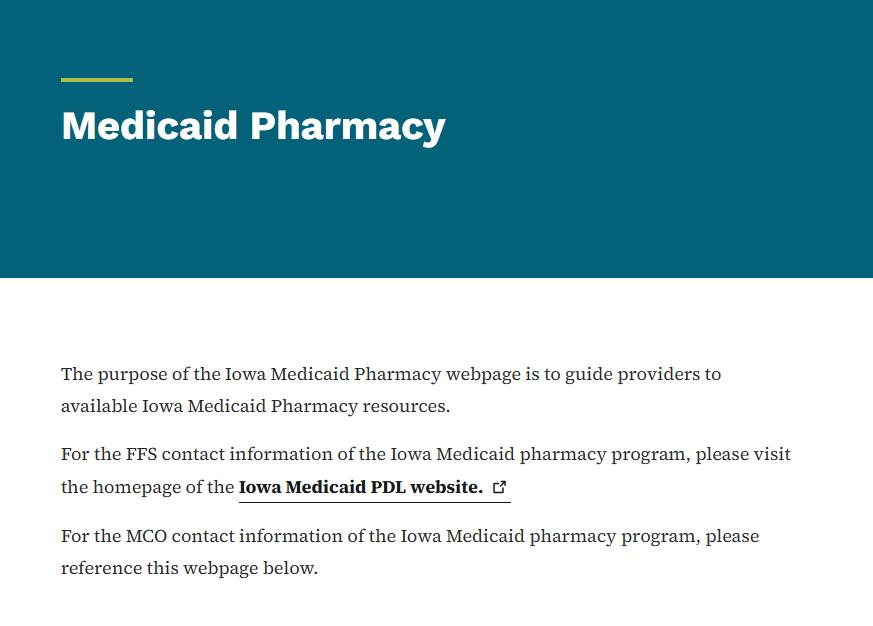

By enrolling as a provider for Iowa Medicaid, pharmacists are not just expanding their services but reinforcing their role as essential healthcare providers in communities. Embrace this opportunity to grow, serve, and lead in the ever-evolving world of pharmacy practice. ■
Pharmacists are the most accessible member of the healthcare team with nearly 9 of every 10 Americans living within five miles of a pharmacy.
Pharmacies across Iowa risk unprecedented rates of closure due to unfair and predatory PBM practices. PBM reform in 2025 must include adequate state licensure, fair reimbursement for prescriptions and strengthened appeals, network adequacy and any willing provider language, and patient choice, anti-steering provisions.
IPA supports continued collaboration with the Iowa Insurance Division and Iowa Legislature for meaningful PBM reform to protect patients against PBM abuses and ensure pharmacy viability.
Across the country, state Medicaid programs and Governors look to Iowa Medicaid’s prescription drug policies in managed care. Iowa Medicaid’s current model utilizes a state managed survey, which prevents the abuses prevalent in private sector PBM relationships and ensures sustainable, predictable, and transparent prescription drug reimbursement under Medicaid. This includes maintaining patient access by paying pharmacies at Average Acquisition Cost (AAC), plus the Average Cost of Dispensing (COD) fee.
IPA supports Medicaid funding for prescription drug reimbursement, in alignment with the increase calculated from Iowa’s 2024 Cost of Dispensing Survey.
The 340B drug pricing program enables covered entities to stretch scarce federal resources as far as possible, reaching more eligible patients and providing more comprehensive services. 11 states have passed 340B protection laws to protect the 340B drug pricing program and to preserve access to care at covered entities and contract pharmacies.
IPA supports regulations to ensure the intent of the 340B program is not eroded by PBMs or drug manufacturers.
IPA supports the development of future pharmacists who are well-prepared to meet the unique needs of rural communities through investing in residency training programs. These efforts are essential to ensuring that patients in underserved areas have access to vital healthcare services, as community pharmacies are often the most accessible points of care for rural populations.
In the 2024 election, Iowa Republicans solidified their control in both chambers of the legislature, achieving supermajorities in the House and Senate. In the House of Representatives, Republicans expanded their majority from 64 to 67 seats, marking the third consecutive election cycle in which their majority has grown. Similarly, Senate Republicans increased their majority from 34 to 35 seats. Key committee leadership appointments signal promising developments for PBM reform.
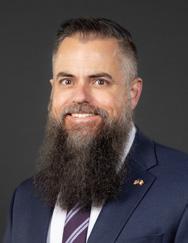
On January 14, 2025, the 91st General Assembly of the Iowa Legislature convened. IPA Member Brett Barker, PharmD, took the oath of office, joining the ranks of newly elected legislators ready to serve. Representative Barker brings great pharmacy perspective as a former Senior Policy Advisor for IPA, former Iowa Board of Pharmacy member, and current Vice President of Operations for NuCara Pharmacy. Representing District 51, he serves the people of Story and Marshall Counties.
PBM reform remains a top priority in Iowa, with increasing media coverage spotlighting PBM practices contributing to pharmacy closures. Pharmacy leaders continue to educate Iowans and advocate for key reforms, including transparency, fair reimbursement, and banning harmful practices like patient steering. IPA’s PBM coalition—including Hy-Vee, the Healthcare Distribution Alliance (HDA), MercyOne, the Iowa Hospital Association (IHA), and the Independent Pharmacy Cooperative (IPC)—has been actively strategizing since August 2024.
Senator Mike Klimesh, newly elected Chair of the Health and Human Services Committee, introduced IPA’s PBM reform bill, SF 383, which passed committee. In the House, Representative Shannon Lundgren advanced HF 852 through the Commerce Committee, and it now awaits a full floor vote. Notably, the PBM bill survived the first funnel, marking a key legislative milestone.
IPA also supported a 340B bill by Representative Brett Barker to prevent manufacturers from restricting pharmacy access to 340B drugs. However, it failed to advance out of the House HHS Committee and did not survive the first funnel.
With strong legislative momentum, IPA and its partners remain committed to securing meaningful PBM reforms for Iowa’s pharmacies and patients.
IPA has worked closely with the Iowa Board of Pharmacy throughout the ongoing rulemaking process following Governor Kim Reynolds issuance of Executive Order 10 (EO 10), which was aimed at streamlining state agency operations through restructuring and removal of “red tape” or otherwise burdensome restrictions. The modernized Iowa Pharmacy Practice Act is included in the complete revision of the Iowa Administrative Code that regulates pharmacy practice in the state.
The Board Rules Committee reviewed public and Administrative Rules Review Committee (ARRC) comments, making recommendations to the Board in February 2025. An additional public comment period was recommended for Chapters 552 and 556. Following the public comment period, the Board will review and vote to adopt the rules. ARRC will review the adopted rules during their monthly meeting following Board publication. The Board anticipates adopting the rules in May/June 2025, with an effective date in July 2025.
In November 2024, the Iowa Insurance Division (IID) announced emergency rulemaking, ARC 8427C, amending Iowa Administrative Code Chapter 59 to align with the statutory requirements of Iowa Code section 510B.8C to ensure compliance with the state’s clean claim standards. Effective immediately, PBMs that enter into effective rate reimbursement contracts with pharmacies must be consistent with the Iowa Code in how they apply those contracts, as cited in Iowa Code section 510B.8C.
The emergency amendment adds the appropriate section regarding timely payment of pharmacy claims and removes language allowing retroactive reimbursement increases. The IID expects all PBMs to comply with Iowa Code section 510B.8C and their effective rate reimbursement contracts from 2023 and 2024.
The 2024 Cost of Dispensing (COD) survey, conducted by Myers & Stauffer, reported an average dispensing cost of $11.37. This data provides essential insights into pharmacy operations across the state and is used across the country for guidance on Medicaid reimbursement for pharmacy services.
In 2024, the Iowa Pharmacy Political Action Committee (IPPAC) contributed to 27 candidate campaigns for the Iowa House, Senate, and Governor Reynolds.
House Republicans: 11 contributions
House Democrats: 4 contributions
Senate Republicans: 8 candidates
Senate Democrats: 3 candidates
Executive Branch: 1 contribution
Nearly all of these IPPAC contributions were delivered by IPA members in their districts to local legislators. Only two candidates supported by IPPAC were not re-elected (7%).
IPA’s strong grassroots and local economic impact is important to our state’s elected officials. During these visits to deliver IPPAC checks, pharmacists discussed PBM reform, and the importance of a strong pharmacy infrastructure in Iowa to maintain access to healthcare. Legislators toured several pharmacies as part of these IPPAC meetings.
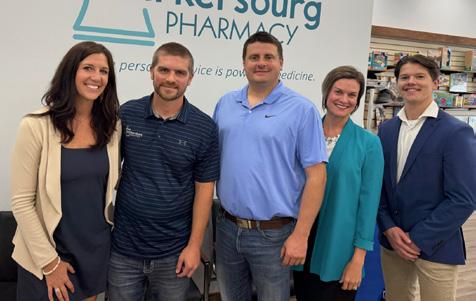
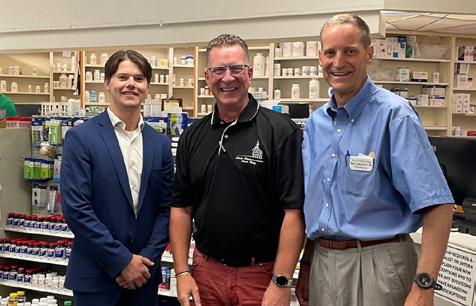
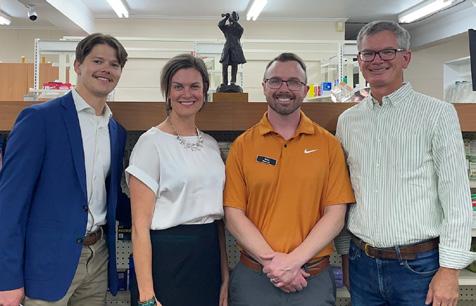
The 2024 IPPAC fundraiser was a special-release single malt whiskey from an Iowa-based distillery. Nearly $1,400 was raised through this fundraiser, bringing total IPPAC funds raised in 2024 to $12,450.

IPPAC Whiskey still available with a $100 donation to the IPPAC!
**Pick up at IPA HQ



Volta Adovor
Kyle Akker
Kenneth Anderson
Michael Andreski
Brent Bovy
Seth Brown
Carl Chalstrom
Connie Connolly
Kyra Corbett
Jay Currie
Lisa Doorenbos
William Drilling
Matt Eide
Cecilia Engstrom
Dalton Fabian
Steve Firman
Kate Gainer
Cory Garvin
Joseph Greenwood
Robert Greenwood
John Hamiel
Brett Hansen
Nathan Harold
Charles Hartig
Jim Hoehns
Elise Houselog
Gregory Hoyman
Joel Hoyman
Ryan Jacobsen
TJ Johnsrud
Booth Pharmacy, Inc.
Clayton Drug
Crescent Community Health Center
Drilling Morningside Pharmacy, Inc.
Dutch Mill Pharmacy
Eagle Grove Pharmacy
Kelly Kent
Wendy Kinne
Emma Kraayenbrink
Shane Madsen
Erik Maki
Randy McDonough
Kristin Meyer
Andrew Miesner
Wendy Mobley-Bukstein
Megan Myers
Robert Nichols
Marilyn Osterhaus
Matthew Osterhaus
Robert Osterhaus
Emmeline Paintsil
Evans Crossing Pharmacy
Greenwood Pharmacy and Compounding Center
Hy-Vee Corporate Office
Medical Associates Pharmacy
Meyer Pharmacy
The Inflation Reduction Act (IRA) of 2022 is set to bring significant changes with the introduction of Maximum Fair Price (MFP) negotiations for branded pharmaceutical products, granting CMS the authority to centrally negotiate drug prices. While CMS has provided guidance on implementation, pharmacies face financial risks, including an average monthly burden of $27,000 in floating MFP refunds from manufacturers. The CMS MFP Payment Mechanism directs funds to pharmacies without federal funding or fees, but CMS will not mediate disputes over nonpayment, leaving pharmacies vulnerable to financial strain. Advocacy groups emphasize the need for clearer regulations and stronger protections to ensure fair payments and program success.
The 340B program requires drug manufacturers to provide discounted outpatient drugs to eligible providers, but recent challenges from companies like Johnson & Johnson, Sanofi,

Wesley Pilkington
Lisa Ploehn
Emily Rogers
Allison Rowland
Cheri Schmit
Susan Shields
Andy Steichen
Nora Stelter
Nicholas Strickler
Mikayla Tice-Harris
Stevie Veach
Nickolas Vogel
Donna Wyatt
Hy-Vee Employees PAC

Reinbeck Pharmacy
Scott Pharmacy, Inc.
Sumpter Pharmacy
Towncrest Pharmacy
and Bristol Myers Squibb are disrupting this model. These manufacturers have proposed a rebate model where providers pay higher upfront prices, typically at wholesale acquisition cost (WAC), and later submit rebate requests. The Health Resources and Services Administration (HRSA) opposes these unilateral changes, arguing that rebates require prior approval from the Secretary of Health and Human Services (HHS), sparking lawsuits and escalating tensions.
Complicating matters, the Inflation Reduction Act (IRA) introduced a Medicare drug price negotiation program requiring manufacturers to offer a Maximum Fair Price (MFP) for certain drugs but exempting 340B providers if their discounted price is lower. Manufacturers argue that providing both 340B pricing and MFP rebates on the same claim could result in duplicative discounts. This shift could impose significant cash flow and administrative burdens on providers, raising broader concerns about the program’s structure and the future of drug pricing models within 340B.
In the latter half of 2024, there was great momentum for PBM reform at the federal level following national advocacy campaigns from the American Pharmacists Association (APhA), National Community Pharmacists Association (NCPA), and American Society of Health-System Pharmacists (ASHP). However, in an effort to avoid a complete shutdown, Congress ultimately excluded PBM reforms in the short-term spending package that will fund the government until March 14, 2025.
The revised funding bill, negotiated solely among House Republicans, strips away significant health care measures, leaving a three-month funding extension. Key exclusions include reauthorizations for the SUPPORT Act and the Pandemic and All Hazards Preparedness Act—longstanding bipartisan initiatives. The latter faced challenges after misinformation about its provisions spread online. Additionally, Medicare physician payment increases, hospital billing transparency measures, and extended telehealth flexibilities were reduced or eliminated. Medicare telehealth services and community health center funding will now only extend until March.
The PBM reforms had represented a significant bipartisan effort to impose new standards on an industry under scrutiny for its role in rising drug costs. Despite broad congressional interest, the changes were excluded from the final package, signaling a win for PBMs and their parent companies, including United Healthcare, Caremark, and Express Scripts. Calls for a standalone health bill were made, but the path forward remains uncertain.
On January 14, 2025, the Federal Trade Commission (FTC) published its second interim staff report on the practices of pharmacy benefit managers (PBMs), focusing on their impact on specialty generic drugs. This latest report builds on findings from the July 2024 report, which revealed that pharmacies affiliated with the Big 3 PBMs accounted for 68% of the dispensing revenue from specialty drugs in 2023, an increase from 54% in 2016. Expanding its analysis to include a broader range of specialty generic drugs compared to the two specialty generics reviewed in the July report, the new findings highlight that the Big 3 PBMs apply substantial markups across a wide variety of specialty generic drugs.

• Excessive Price Markups:
The Big 3 PBMs applied markups of hundreds to thousands of percent on specialty generic drugs dispensed at their affiliated pharmacies. These actions generated over $7.3 billion in revenue from 2017 to 2022, far exceeding the drugs’ estimated acquisition costs.
• Affiliated Pharmacy Advantage:
PBM-affiliated pharmacies were disproportionately favored, dispensing the majority of prescriptions for specialty generics with markups exceeding $1,000. This suggests PBMs may be steering the most profitable prescriptions toward their own pharmacies.
• Spread Pricing Income:
The Big 3 PBMs earned an additional $1.4 billion through spread pricing, where plan sponsors were billed more than pharmacies were reimbursed for specialty generic drugs.
• Rising Costs for Patients and Plan Sponsors:
Between 2017 and 2021, plan sponsor payments for specialty generics grew at an annual rate of 21% for commercial claims, with patients contributing $297 million in cost-sharing by 2021.
• Impact on Parent Companies:
Revenue from specialty generic drugs significantly bolstered the operating income of the PBMs’ parent companies, accounting for 12% of their aggregated business segment profits in 2021.
Former FTC Chair Lina M. Khan emphasized the urgency of addressing practices that inflate drug costs and reduce access to affordable care, stating, “The Big 3 PBMs hiked costs for lifesaving drugs, impacting patients and squeezing independent pharmacies. The FTC must act swiftly to stop these harmful practices.”
Director Hannah Garden-Monheit of the FTC’s Office of Policy Planning highlighted the growing severity of the issue, underscoring the need for policymakers to intervene.

The 2024 American Stroke Association (ASA) guidelines focus on preventing strokes by addressing lifestyle changes, medical interventions, and social determinants of health (SDOH). The guidelines emphasize controlling modifiable risk factors, such as high blood pressure and cholesterol, through statins, blood pressure medications, and healthy lifestyle practices like regular exercise and smoking cessation. Additionally, the ASA recognizes the role of SDOH, including socioeconomic status and access to healthcare, as critical components in effective stroke prevention. Addressing these broader factors can help reduce disparities and improve patient outcomes.
UnitedHealthcare CEO Brian Thompson, 50, was fatally shot in a targeted attack outside a Manhattan hotel on December 4, 2024. The shooting prompted an extensive manhunt in the area, concluding with the arrest of Luigi Mangione on December 9. Thompson was an Iowa-native who graduated from the University of Iowa.
The fatal shooting sparked a surge of public emotion—from fear to frustration—as Americans shared personal experiences with health insurance companies and examples of denied claims. According to a police report obtained by the Associated Press, the alleged shooter possessed a handwritten document expressing anger with “parasitic” health insurance companies and disdain for corporate greed and power.
The Department of Health and Human Services (HHS) has granted an extension through December 31, 2029, for pharmacists, pharmacy technicians, and student pharmacy to retain certain authorities and associated liability protections under the Public Readiness and Emergency Preparedness (PREP) Act. While the Act was originally set to end on December 31, 2024, this extension preserves pharmacists' ability to administer COVID-19 tests, vaccines, and treatments distributed by the federal government.
Following his November election win, President Donald Trump announced several notable healthcare-related appointments. For the Department of Health and Human Services, he selected former presidential candidate Robert F. Kennedy, Jr. Trump nominated Dr. Jay Bhattacharya, a Stanford physician and health economist known for opposing pandemic lockdowns and vaccine mandates, to lead the National Institutes of Health (NIH), a $48 billion agency that funds and conducts medical research. Bhattacharya co-authored the Great Barrington Declaration, which argued that lockdowns caused significant harm.
For the Centers for Medicare and Medicaid Services (CMS), Trump appointed Dr. Mehmet Oz, a longtime talk show host and wellness influencer. The Food and Drug Administration (FDA) pick, Dr. Marty Makary, is a Johns Hopkins professor and cancer specialist who has criticized overprescribing, pesticide use, and corporate influence in healthcare. Dr. Janette Nesheiwat, medical director of CityMD, was tapped as Surgeon General. Both Makary and Nesheiwat were frequent Fox News contributors, reflecting a trend among Trump’s nominees of critiquing traditional COVID-19 health measures.
In mid-January, the FDA officially banned Red No. 3 from all food, beverages and ingested drugs, requiring companies to remove it by January 2027. While this marks progress, eight other synthetic dyes are still approved for consumption in the U.S., despite growing concerns over their potential health risks. These dyes, often derived from petroleum-based chemicals, have been linked to cancer, hyperactivity and ADHD, with children and those with certain health conditions at higher risk. Red 40, Yellow 5, and Yellow 6 continue to account for 90% of food dyes used in the U.S.
2024 paved way for an exciting year ahead for the IPA Foundation. Over the summer, IPA conducted two virtual focus groups, presenting the IPA Foundation’s current structure and soliciting feedback on a new look and new giving opportunities. These focus groups brought together IPA members, staff and past presidents to brainstorm the future of the Foundation. Ensuring members can easily, seamlessly support the Foundation was a key focus of discussion.
Following Board approval in November, the Foundation unveiled a new name for its group of donor leaders (previously the Foundation Institute). No matter the amount, IPA Foundation Sustaining Donors are committed to an annual or monthly gift supporting Foundation initiatives that benefit student pharmacists, leadership development and practice advancement in the state. In addition, individuals can now enroll as Sustaining Donors online and make automatic payments via credit card. No paper form needed!
In 2025, the IPA Foundation will debut a new logo, aimed at building brand recognition and better communicating the important work of the Foundation. The new logo features a hand holding a mortar and pestle in IPA’s signature blues, honoring the past while looking to the future of pharmacy practice. For its 2025 fundraising campaign, the Foundation will also implement a multifaceted Day of Giving to spark some friendly competition and bring in additional donations. ■
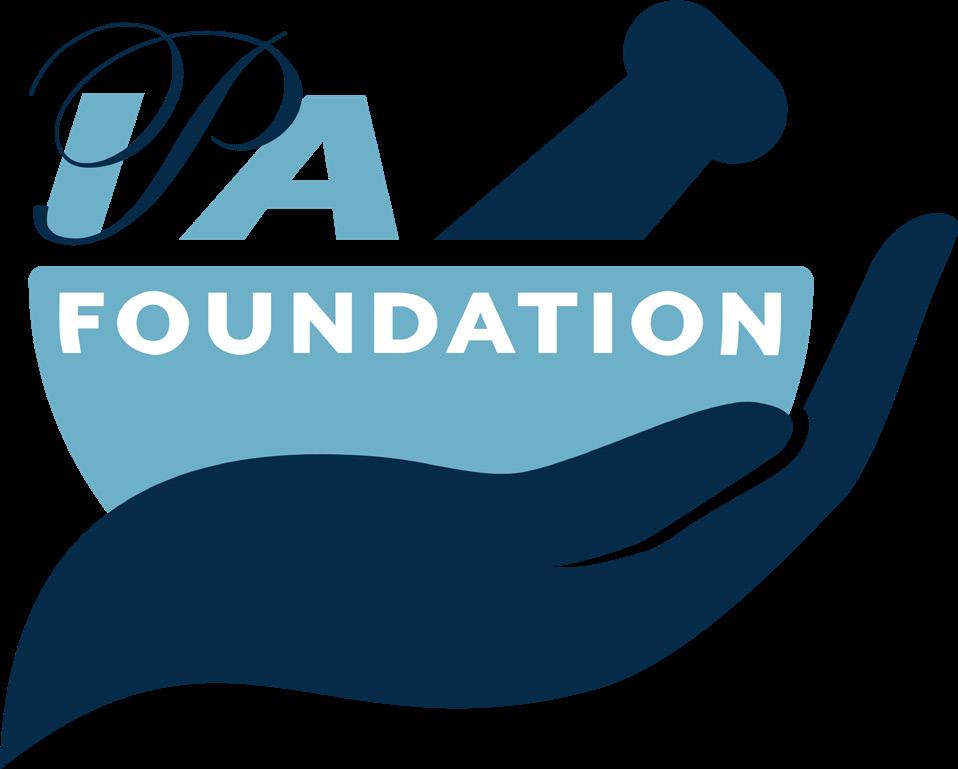

SCAN the QR code to ENROLL as a Sustaining Donor today! Select Annual or Monthly Giving

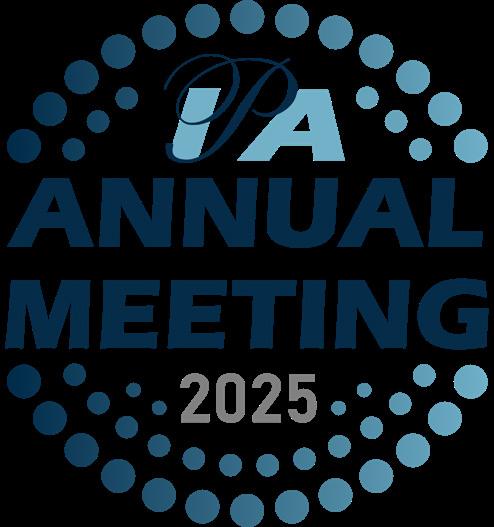
DONATE an item or make a monetary donation to the IPAF Silent Auction!


Matthew Witry, PharmD, PhD
Associate Professor, Division of Health Services Research, University of Iowa 2023 Grant Recipient, $10,000 Awarded
The goal of this prospective, 2 group study was to test a newly developed worksheet for helping patients develop a habit for taking their newly prescribed maintenance medication. The rationale for using habit science to support medication adherence is that habit-based interventions have been successful with helping patients adhere to diet, exercise, and other health behaviors but have received less attention with medication-taking.
Patients were recruited at a primary care clinic by the clinic pharmacist. Sixteen patients were in the control group, and 17 were in the intervention group. Both groups completed an initial survey (which assessed demographics and measures of habit strength for taking and beliefs about medicines) and received routine counseling by the pharmacist. Intervention patients also completed the habit worksheet. Patients in the intervention group specified a cue they would use to anchor their habit (several pictogram suggestions are provided on the form that denote meals, coffee,
teeth brushing, dressing, nightstand/dresser location). Patients also wrote out their plan in words for reinforcement. The most specified cues were meals (n=8 e.g. morning coffee, breakfast, dinner), hygiene cues (n=5 e.g. shower/bathroom/ teeth brushing), and location/visual cues (n=4 e.g. noticing pillbox on nightstand, couch). Participants also had space to specify a backup plan, although 6 chose not to do this.
Data collection is still ongoing. Participants will receive a follow up survey at 100 days which includes measures of automaticity, medication beliefs, self-reported adherence, and comments about the worksheet. Planned analyses will test associations between medication beliefs, habit strength, and self-reported medication adherence and for differences between the intervention and control groups on these outcomes (habit strength and adherence). ■
Each year, the Outcomes Innovative Pharmacy Grant Program provides financial support for research, education and promotion of innovative pharmacy practice initiatives in the state of Iowa.
Pharmacy Technician Certification Board (PTCB) Pathway ($10,000)
Jamie Pitlick, PharmD, BCPS, BC-ADM, Professor and Chair, Pharmacy Practice, Drake University College of Pharmacy and Health Sciences
Implementing Long-Acting Injectable (LAI) Medications in a Comprehensive Strategy for Opioid Abstinence ($1,500)
Opeyemi Omotoyinbo, PharmD, University of Iowa PGY1 Community-Based Resident, MercyOne Pharmacy
Evaluation of Community Pharmacy Outreach Events to Screen for Human Immunodeficiency Virus (HIV) ($1,500)
Destanie Truman, PharmD, University of Iowa PGY1 Community-Based Resident, Greenwood Pharmacy
Implementation and Evaluation of Vivitrol Administration Service in an Independent Pharmacy ($1,000)
Emilie Heggen, PharmD, University of Iowa PGY1 Community-Based Resident, Towncrest Pharmacy

PLATINUM ($1000+)
Bruce Alexander
Carl Chalstrom
Renae & Eddie Chesnut
Cheryl Clarke
Connie & Chris Connolly
Jay & Ann Currie
Michele & Michael Evink
Ryan Frerichs
Kate & Bob Gainer
Bob & Cheri Greenwood
Tom Halterman
John Hamiel
Jim Hoehns
TJ Johnsrud
Rick Knudson
Jill Kolesar & Lee Vermeulen
Lindsey Ludwig
Randy McDonough
Stephen Mullinex
Wes Pilkington
Lisa Ploehn & Ann Cypher
Pamela Wiltfang
GOLD ($500-$999)
Bill Baer
Raemi Chavez
Chris & Jen Clayton
Ashley Cook
Nathan Harold
Morgan Herring
June Johnson
John L’Estrange
Linda Nightingale
Matt & Marilyn Osterhaus
Rachel Otting
Chuck Phillips
Matt & Jamie Pitlick
Anthony Pudlo
Brian Rakers
Emily Rogers
Robert Schroeder
Susan Shields
John & Sarah Swegle
Stevie Veach
SILVER ($250-$499)
Kelly Anderson
Steve Firman
Tyson Ketelsen
Julie Kuhle
Craig Logemann
Nick Lund
Gene & Susan Lutz
Shane Madsen
Dana McDougall
Alex Mersch
Kristin Meyer
Heather Ourth
Kaitlyn Pegump
Diane & Jeff Reist
Jenna Rose
Doug Schara
Cheri Schmit
Omobola Thompson
Cindy Uetz
Terry & Sara Wiedenfeld
Jennifer Williams
Micheal Wolnerman
Matthew Yeates
BRONZE ($100-$249)
Brett Barker
Brent & Val Bovy
Sharon Cashman
Bailey Davis
Bill Doucette
Bill Drilling
Helen Eddy
Erika Ernst
John Forbes
Sarah Grady
Megan Hanna
Grant & Elise Houselog
Sandra Johnson
Terry Johnson
Wendy Kinne
Laura Knockel
Milo Lines
Deanna McDanel
Robert Nichols
Phyllis Olson
Emmeline Paintsil
Mike Pursel
Jose Rodriguez
Bibiana Ruiz Granado
Jenelle Sobotka
Bob Stessman
Heather Storey
Nicholas Strickler
Dave Weetman
Eric Weetman
Bral & Neidert
Decker Temple Leadership
Pharmacy Class of 2017
Decker Temple Leadership Pharmacy Class of 2021
Decker Temple Leadership Pharmacy Class of 2022
Decker Temple Leadership Pharmacy Class of 2024
Clayton Drug
Community Foundation of Greater Des Moines
Drake University College of Pharmacy & Health Sciences
Eide Walton
Greenwood Pharmacy & Compounding Center
Hartig Drug
Jacobsen & Company, LLP
Main at Locust Pharmacy
Maquoketa Pharmacy, Inc. dba
Osterhaus Pharmacy
McKesson
MedOne Pharmacy
Benefit Solutions
NuCara Pharmacies
OneroRx
Onnen Company
Pharmacists Mutual
PharmServ Staffing
Quad City Area Pharmacy Association
SafeNetRx
Towncrest Pharmacy
University of Iowa
College of Pharmacy
Chris Connolly/Wells Fargo Advisors

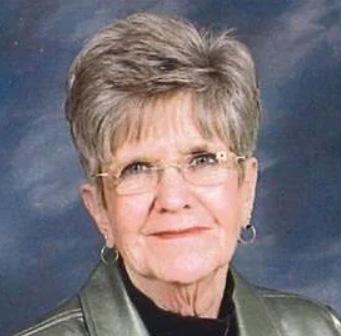
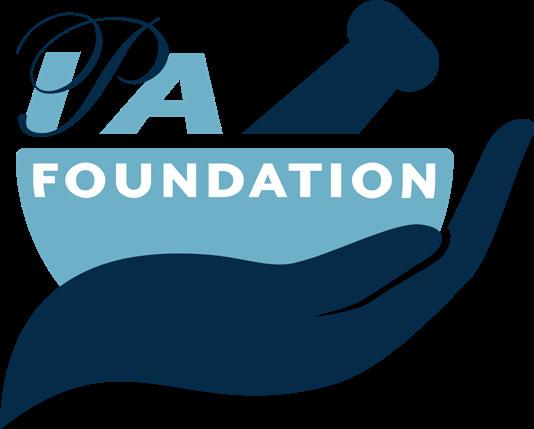



Candidates using PTCB’s Practice Tools consiste higher passing rates , giving them the confidence



Employers and educators can easily support candidates by Get started at ptcb org using PTCB's direct billing service to purchase vouchers online




Suma Arunkumar
Rachel Bass
Bridgette Blasberg
Alexander Burkett
Abbey Burrows
Ezra Cabatu
Mikayla Campbell
Rosemary Carpenter
Faithe Cavalier
Rachel Doran
Melodie Estes
Alison Feight
Jesica Green
Michael Griffen
Elizabeth Hahn
Erin Harlan
Taylor Hartwig
Philip Harvey
Jennifer Hernandez
Cassie Hinshaw
Amra Ibrahimovic
Blake Ingvall
Lauryn Johannsen
Elise Kehoe
Julietta Keuck
Allen Kidangayil
Heather Kientoff
Madyson King
Cody Kjellsen
Stefanie Knor
Linda Kriens
Anna Lafontant-Woolums
Rochell Longstreet
Claudia Lopez
Timothy Loynachan
Stephanie Maldonado
Destiney Martinez
Emily Matsumura
Isabel McGrane
Afton Meyer
Shanice Midthus
Brendan Millslagle
Micaela Morales Gonzales
Lauren Moritz
Isita Mustafi
Koby Nelson
Anna Nguyen
Melissa Nichols
Benedicte Ntedika
Barbara Perez
Breanna Peyton
Victoria Prochaska
Reginald Quarcoo
Olivia Quick
Alecia Rapp
Emma Reese
Joanna Revers
Lilianna Reyes
Ethan Rice
Karen Richard
Jaidyn Robertson
William Rockett
Daniel Rompot
Irene Rosas
Brylee Ruppert
Anne Salpor
Cheyenne Sherfey
Ella Skinner
Alexandria Solbrig-Khalil
Alexis Steinhauer
Adriana Stuppi
Isabella Taylor
Angelica Tejeda
Paige Thomas
Mya Thomas
Shipra Tiwari
Elle Turner
Deborah Uthe
Azam Valipouralmasi
Violet Van Otterloo
Adolfo Vargas
Emily Wallin
Elizabeth Walton
Amy Wells
Breianna White
Cassie Williams
Brooke Windisch
Katherine Wright
Shamso Yusuf
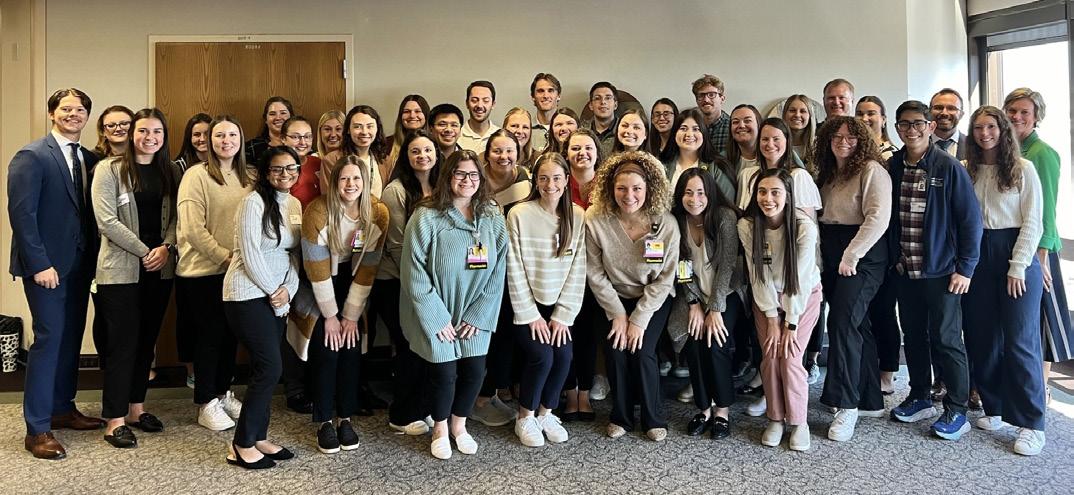
In October, IPA held its annual Residents Meeting at the University of Iowa Healthcare Medical Center. Iowa pharmacy residents gathered to get to know each other and pharmacy leaders from across the state. The keynote speaker, Brandon Gerleman, PharmD, shared his unique career journey in a session titled “Navigating a World of Change: It’s the Only Constant,” reminding us how crucial adaptability is in today’s rapidly changing healthcare environment. Additionally, IPA members led a panel discussion, diving into topics covering work-life balance, avoiding burnout, and best practices to thrive in residency.
After the meeting, P2 and P3 students from Drake University College of Pharmacy and Health Sciences and the University of Iowa College of Pharmacy attended IPA’s Residency Showcase, providing the opportunity to connect with current residents and residency program directors from top programs across Iowa, Minnesota, Wisconsin, and Illinois. Thank you to all current and future leaders in pharmacy who participated in these events!

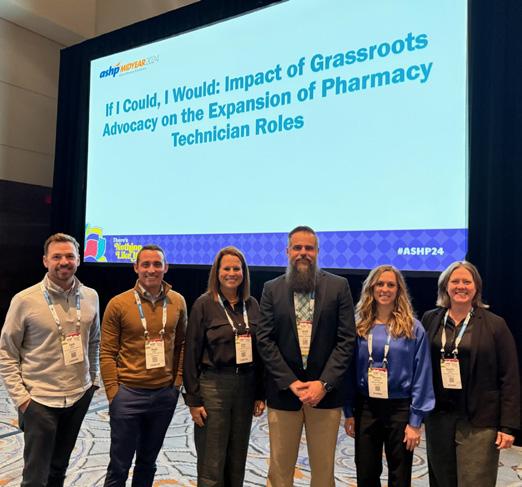
Hosted in New Orleans by IPA, Drake University College of Pharmacy and Health Sciences, and the University of Iowa College of Pharmacy, the Iowa Reception was well attended with nearly 400 pharmacists and student pharmacists gathered to network and celebrate. The 2024 reception was the first year IPA welcomed two new Deans, Erik Maki (Drake CPHS) and Jill Kolesar (UICOP) to the stage (Left). The energy in the room was electric, filled with students, residents, preceptors, and practicing pharmacists with connections to the state of Iowa.
Several Iowa pharmacists and IPA members presented during the Midyear Clinical Meeting, including Heather Ourth, Brianne Bakken, Alex Mersch, Micaela Maeyeart, Brett Barker, and Gretchen Brummel (Right).
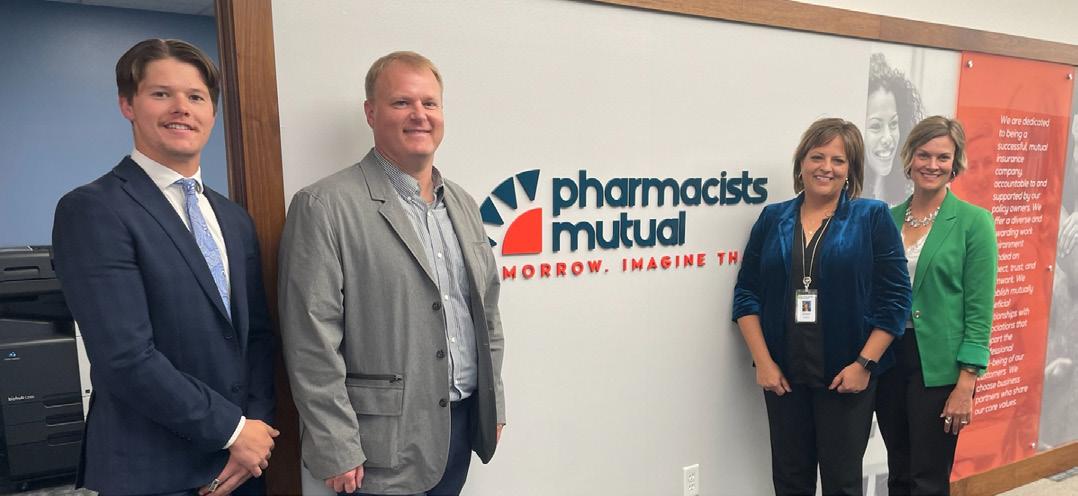
IPA was invited to Pharmacists Mutual (PMC) to present on Iowa’s new Pharmacy Practice Act and the standard of care model in pharmacy practice and regulation. The presentation took place at Pharmacists Mutual’s headquarters in Algona, Iowa. Kate Gainer provided an update on Iowa’s timeline to pass the Practice Act; new provisions in the act; and how standard of care can impact pharmacy practice and regulation in Iowa. Remotely, Jen Adams, PharmD, EdD, FAPhA, FNAP, Clinical Associate Professor at Idaho State University, joined the meeting to share insight from Idaho, the first state to pass standard of care language five years prior to Iowa.
The executive team and underwriting team from Pharmacists Mutual attended the presentation and shared insight on claims received and anticipated questions. The role and importance of peer review was discussed, and the opportunity for IPA and PMC to continue collaboration and leadership was noteworthy.
On September 25, IPA held its 2024 Industry/Managed Care Forum, where IPA members met and learned from Wellmark’s new Chief Pharmacy Officer, Paul Karow, PharmD, and IPA’s new Vice President of Professional Affairs, Ryan McClellan, PharmD, SHIMSS. Karow shared his background, discussed his new role, and answered member questions during a Q&A session. McClellan presented on ways to leverage technology and data analytics in the industry/managed care space.
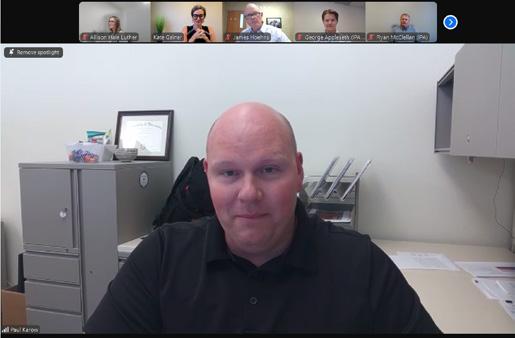
On November 6, IPA held its 2024 Pharmacy Technician Forum, welcoming Ashley Loeffelholz, PharmD, Director of Clinical Services at OneroRx, who shared insights into OneroRx’s pharmacy technician career ladder program. Loeffelholz highlighted strategies and initiatives to advance the pharmacy technician role, including training for expanded skills such as vaccine administration, point of care services, Medication Therapy Management, Technician Product Verification, and Community Health Workers.
In 2024, IPA Goes Local was brought to eight cities across the state, from Council Bluffs to the Quad Cities. Over 200 pharmacists, pharmacy technicians, and student pharmacists attended these events to learn and network at the local level. The 2024 CPE program explored pharmacy’s role in providing whole-person care for people living with dementia, considering the unique needs of each patient and their caregivers. The program, presented by Kashelle Lockman, PharmD, MA, James Ray, PharmD, CPE, and Lorin Fischer, PharmD, BCACP, featured a virtual reality (VR) simulation for participants to “see and hear” the world through the eyes and ears of their patients with dementia.
The 2025 IPA Goes Local program will be “Implementing Iowa’s Pharmacy Standard of Care: From Framework to Practice,” a comprehensive exploration of the new Iowa Board of Pharmacy regulations and the standard of care framework. Attendees will gain a thorough understanding of these recent changes and their implications for pharmacy practice. The session will delve into practical strategies for implementing these regulations, emphasizing how pharmacists can leverage their experience and training to enhance and expand their professional roles.
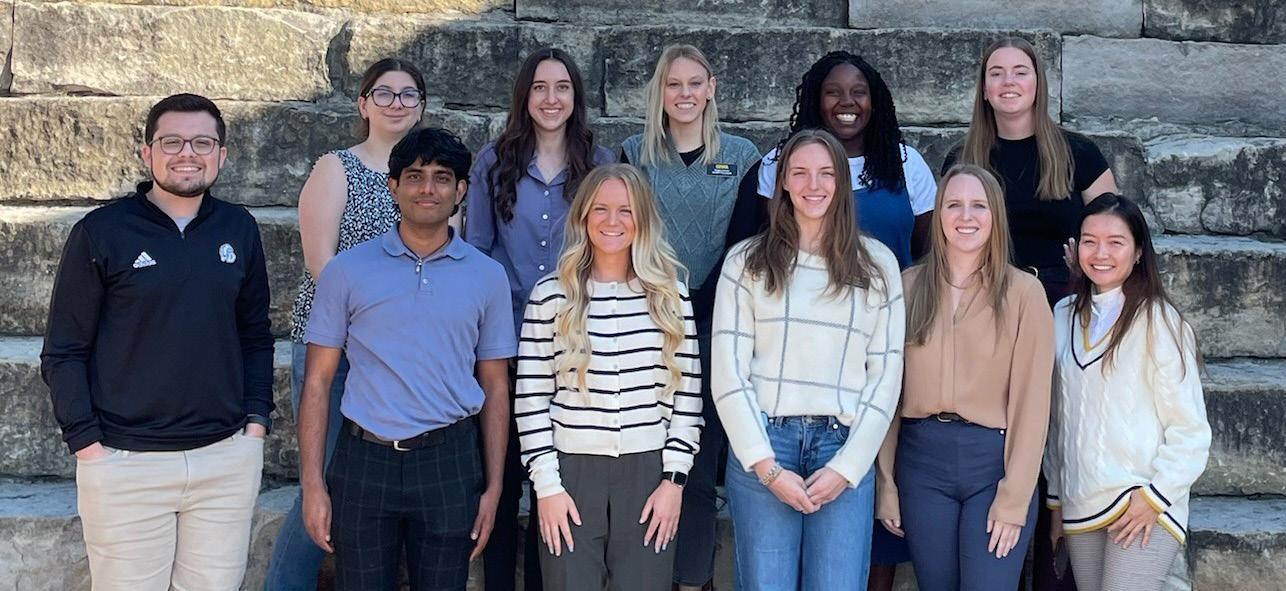
Led by IPA’s Vice President of Professional Affairs, Ryan McClellan, and IPA’s Executive Fellow, George Appleseth, eleven student pharmacists from Drake University and the University of Iowa participated in a two-day leadership retreat October 19-20. Participants engaged in discussion and activities on leading pharmacy culture, change management in pharmacy, effective leadership strategies, and navigating pharmacy practice issues.
Thank you to the colleges of pharmacy, Sarah Ennis of SparkPoint, Inc., and Main at Locust Pharmacy and Medical Supplies for contributing to another successful Bill Burke Conference. Congratulations to the 2024 Bill Burke Student Pharmacist Leadership Class!
University of Iowa
Volta Adovor
Sang Bui
Hannah Kohlman
Hannah McMurrin
Megan Schreur
Drake University
Armin Dogic
Basil Elayadom
Madison Jesson
Stacy Johnson
Madeline Smith
Ella Waddle
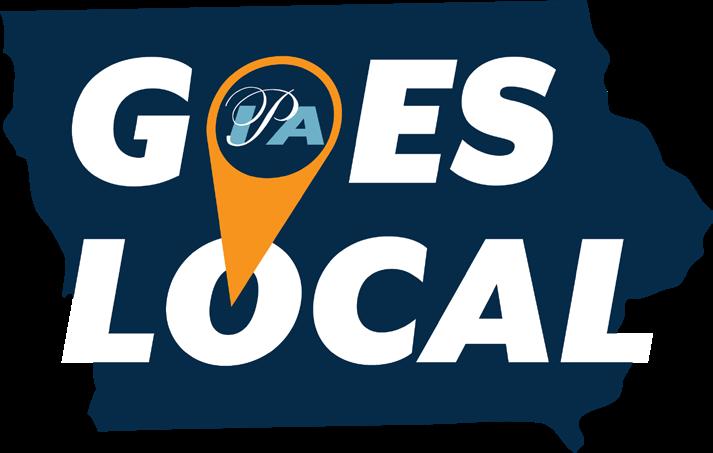
Mason City – April 10
Council Bluffs – April 17
Quad Cities – May 29
Des Moines – Aug. 21

Black Hawk/Bremer Co – Sept. 11
Spencer – Oct. 2
Dubuque – Oct. 9
Iowa City – Nov. 6
Throughout the fall, IPA took measures to address the 2024 national IV fluid shortage caused by hurricanes Helene and Milton:
1. Informative Webinar:
IPA hosted a webinar for members, providing updates on the shortage, conservation strategies, and alternative treatments.
2. Regional Collaboration: IPA participated weekly in Region VII Disaster Response efforts, facilitating resource and information exchange across states.
3. Government Liaison: IPA continues to maintain regular communication with Iowa Health and Human Services (HHS), aligning pharmacy practices with public health strategies.
4. Impact Assessment: IPA distributed surveys to pharmacies statewide, quantifying the shortage’s impact and identifying critical need areas.
5. Resource Management:
IPA shared mitigation strategies, including IV fluid conservation guidelines, alternative treatment protocols, and supply redistribution systems.
Through these efforts, IPA aims to demonstrate proactive leadership in crisis management, supporting members and safeguarding public health during national shortages.

In 1985, the Pace Alliance buying group program started as a joint venture between private owners and five state pharmacy associations. Iowa was one of the first three states (along with Nebraska, after Kansas) to join Pace Alliance. As a shareholder in Pace Alliance, an Iowa pharmacist has always served as a board member on the board of Pace Alliance. Eventually, 19 state pharmacy organizations purchased stock to become joint owners of the corporation.
Pace Alliance, as a buying group program, was formed to serve the primary objectives:
1) To obtain lower prices from drug companies on prescription drugs for independent pharmacies;
2) To obtain lower fees from wholesale drug distributors for independent pharmacies; and
3) To generate revenue for state pharmacy associations and service corporations for their individual use in support of the survival and prosperity of independent pharmacies.
1985 — Started exclusive agreement with one wholesaler (FoxMeyer, purchased by McKesson in 1996)
1986 — First Pace contract with generic drug companies
1987 — Expanded group purchasing program to multiple wholesalers
1988 — First GPO for independent, retail pharmacies to receive rebates directly from drug company
1989 — Helped form FPN (Federation of Pharmacy Networks)
2001 — Formed Pharmacy Select with IPC and PPSC
2009 — Modernized group purchasing contract exclusive with McKesson
2017 — Merged buying group program with Independent Pharmacy Cooperative (IPC)
2024 — Pace Alliance board approved plan for dissolution
Throughout its nearly 40-year history, Pace Alliance has been known to many IPA members—to pharmacy owners in Iowa as a buying group, and to IPA Board members as an important source of non-dues revenue for the association. The three primary objectives that Pace Alliance was created to achieve remained relevant throughout the duration of Pace. In the mid-1990s, Pace Alliance served nearly 4,000 community independent pharmacies across 33 states, making it the largest buying group program at the time. As buying group competition increased, Pace Alliance numbers steadily declined in most states through the first two decades of the 2000s.
Following the 2017 merger with IPC, Pace Alliance no longer served as a buying group, and exclusively as an independent pharmacy support organization. From 2017-2024, states participating in Pace partnered with IPC and McKesson to market and support activities that strengthened independent community pharmacy. Kate Gainer, as IPA’s CEO, represented Iowa and served as a Pace board member, including a term as Secretary, leading up to the board’s plan and approval for dissolution.
IPA has been selected to receive funding through the McKesson Amplify program in 2025. This funding will support IPA’s advocacy efforts to improve patient care and ensure the sustainability of the future of the profession. The McKesson Amplify program is designed to support state pharmacy associations in their efforts to advance the pharmacy profession and create pathways for real, lasting change for independent pharmacies. This funding can be used to expand advocacy efforts, host quality events, and support initiatives that drive positive change in pharmacy.
Some of the key areas that IPA will focus on this year include:
• Advocating for legislative reform;
• Creating resources to drive practice transformation under the standard of care regulatory framework; and
• Supporting Iowa pharmacists enrolling as providers and billing for their services in Iowa Medicaid.
This support underscores IPA and McKesson’s shared commitment to elevating the pharmacy profession and delivering exceptional care to patients in Iowa communities.
Congratulations to Cory Garvin, PharmD, who was appointed to Iowa’s Medical Cannabidiol Board!
Happy retirement to Craig Logemann, PharmD, after 20+ years with UnityPoint!
Happy retirement to John Hamiel, PharmD, who will be stepping down from his role as Regional Pharmacy Director at MercyOne Northeast Iowa in April!
Congratulations to Kimerly Metcalf, CPhT-Adv, who was appointed to ASHP’s Section of Digital and Telehealth Practitioners (SDTP) workgroup, as well as APhA’s Committee on Nominations!
Congratulations to Nathan Harold, PharmD, who was promoted to Chief Pharmacy Officer at MedOne Pharmacy Benefit Solutions!
Congratulations to Gary Milavetz, BS, PharmD, RPh, FCCP, FAPhA, who was awarded the University of Minnesota College of Pharmacy’s Alumni Achievement Award!
Best of luck to Mark Notz, PharmD, BCPS, in his new role as Director of Pharmacy Operations and Account Management at
Congratulations to Wendy Mobley-Bukstein, PharmD, BCACP, CDCES, CHWC, NASM-CPT, FAPhA, FADCES, who was selected to receive APhA’s Distiuished Achievement Award in Service! The award will be presented at the APhA Annual Meeting, March 21-24, 2025.
Congratulations to Medicap Pharmacy/OneroRx, voted Best Local Pharmacy in the 2025 Best of Des Moines Cityview readers’ poll!
Congratulations to Hy-Vee, who was named Drug Store News’ 2024 Pharmacy Innovator of the Year!
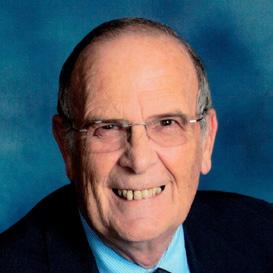
IPA is saddened to share the passing of Alan “Al” Shepley, a past IPA President (2001-2002), IPA Treasurer (2011-2013), Foundation Board member, and dedicated Iowa pharmacist. Al purchased Mount Vernon Pharmacy in 1980 and ran the pharmacy until he retired and sold the business in 2014. He also served on the Iowa Board of Pharmacy from 1984-1993. Al passed away on December 25, 2024, surrounded by his wife, Barb, and children.



on “Calendar of Events” under the Events tab.
are subject to change.
Onnen Company has been serving our customers’ needs since 1964. Fourth generation owned and operated, we offer endless industry knowledge through dedicated sales reps, management and owners with well over 100 years combined experience. We have a knowledgeable, unparalleled, and dedicated customer service staff to help you through the order process. Thank you for trusting us to continue to serve your prescription packaging and pharmacy supply needs.

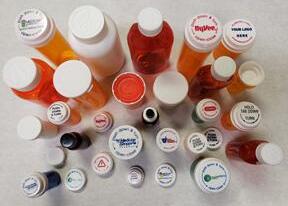


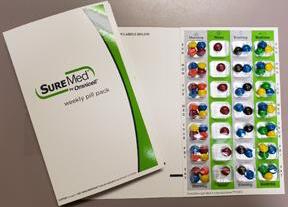



Gale Stapp, the first Vice President of the Iowa Pharmaceutical Association, was elected Vice President of the Midwest Conference of State Pharmaceutical Associations. The conference was held in Kansas City, MO.
Effective February 28th, the Bureau of Narcotics revised federal narcotic regulations to allow institutions that have both Class III and IV registration permits to order narcotics on a single order form, prepare a single narcotic inventory, and keep a single set of narcotic records.
Also, Roche Laboratories decided to add expiration dates to OTC and prescription drugs. This was the first time that all products from a major pharmaceutical company provided this.
The 89th Convention for the Iowa Pharmaceutical Association was held at the Savery Hotel in Des Moines, and Jack Smit of Davenport was elected President. Topics discussed included ensuring Medicare claims were paid in the same month that they were filed and opposing the FDA’s plans to allow nitroglycerine to be available over the counter.
In addition, the International Narcotics Control Board was created, combining the Permanent Central Opium Board and Drug Supervisory Board into one.
MAY:
APhA’s Annual Convention took place May 5-10, with a pre-convention tour taking place in the Bahamas. Max Eggleston of Waverly was installed as the first Iowa pharmacist to serve as President of APhA.
JUNE:
Ovral was the first oral contraceptive marketed in the U.S. Each tablet contained 0.5mg norgestrel (0.25mg d-norgestrel) and 0.05mg ethinyl estradiol, and each pillpack contained 21 tablets (one month supply).
OCTOBER:
Desferal (deferoxamine mesylate) was approved as the first drug to treat acute iron intoxication. The medication is administered either intramuscularly or intravenously (only for those in cardiovascular collapse).
NOVEMBER:

The first report of the International Narcotics Control Board was delivered to the United Nations. Topics covered included psychotropic substances, manufacturing of drugs, information on drug dependence, treatment and rehabilitation of addicts, and the importance of controlling these substances.
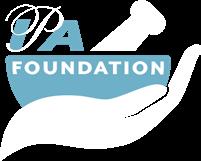
The Iowa Pharmacy Association Foundation is committed to the preservation of the rich heritage of pharmacy practice in Iowa. By honoring and remembering the past, we are reminded of the strong tradition we have to build upon for a prosperous future for the profession.
